41 min read
Welcome 2023: Industry’s wishes for a sustainable shipping
By: Safety4Sea on January 3, 2023 at 8:00 AM

New year, new shipping! A brand-new year is a time for reinvention for many. And 2023 isn’t any different. With the start of a new year, it is a great opportunity to take the time to reflect on the past and move forward with renewed intentions for the next 365 days ahead.
If you could make one wish for the maritime industry for 2023, what would you ask for?
Kitack Lim, Secretary-General , International Maritime Organization (IMO)
 The prime goal for IMO in 2023 is to achieve the adoption of the revised IMO Strategy on Reduction of Greenhouse Gas Emissions from Shipping raising our level of ambition, showcasing IMO’s determined maritime decarbonization commitment and providing a framework to ensure we leave no one behind. This will set the sector’s trajectory for the future and contribute to the global fight against climate change.
The prime goal for IMO in 2023 is to achieve the adoption of the revised IMO Strategy on Reduction of Greenhouse Gas Emissions from Shipping raising our level of ambition, showcasing IMO’s determined maritime decarbonization commitment and providing a framework to ensure we leave no one behind. This will set the sector’s trajectory for the future and contribute to the global fight against climate change.
Guy Platten, Secretary General, ICS
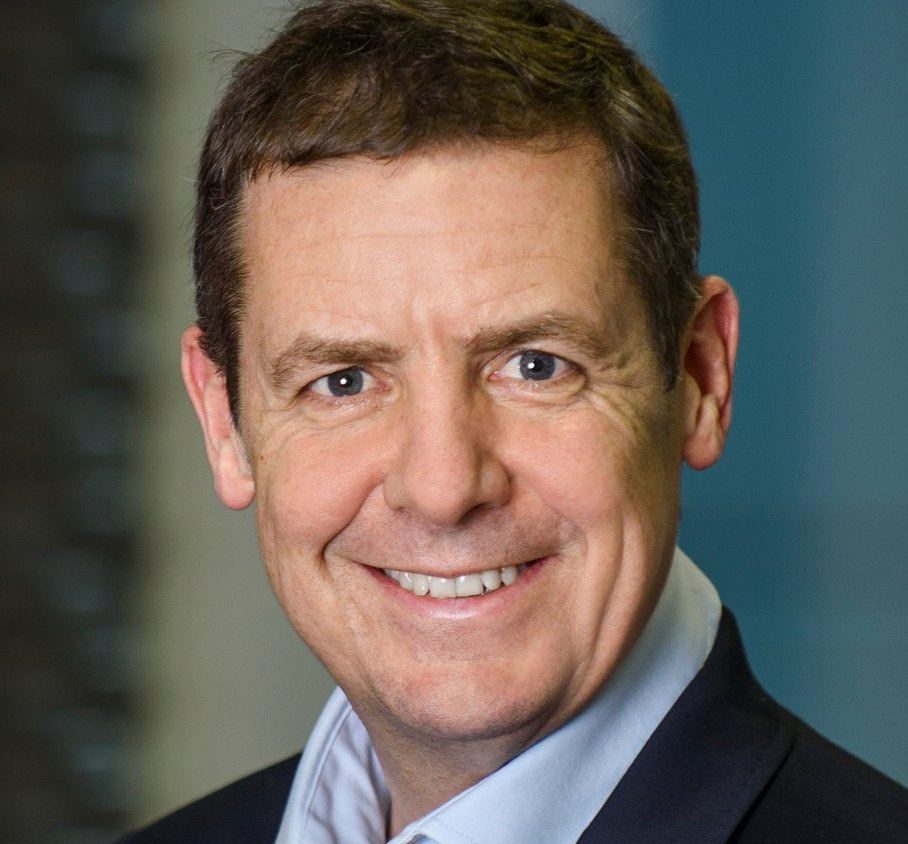 For yet another year our seafarers continue to be unsung heroes. Thanks to their hard work, we managed to avoid a humanitarian crisis by transporting vital grain supplies out of war-torn Ukraine. My thanks go out also to the Joint Coordination Centre who ensured that grain corridors out of Ukrainian ports were put in place. Looking to the year ahead my wish is to see seafarers always kept front of mind in all the work our industry does and give them the support they need. Their safety must be a priority. My message to seafarers is that we are thinking of you, of your welfare and of your future. We are on your side and here to help you. I wish everyone a happy New Year.
For yet another year our seafarers continue to be unsung heroes. Thanks to their hard work, we managed to avoid a humanitarian crisis by transporting vital grain supplies out of war-torn Ukraine. My thanks go out also to the Joint Coordination Centre who ensured that grain corridors out of Ukrainian ports were put in place. Looking to the year ahead my wish is to see seafarers always kept front of mind in all the work our industry does and give them the support they need. Their safety must be a priority. My message to seafarers is that we are thinking of you, of your welfare and of your future. We are on your side and here to help you. I wish everyone a happy New Year.
Captain Kuba Szymanski, Secretary General of InterManager
 InterManager would like to see onboard safety improved so seafarers don’t risk their lives when doing their jobs. In particular we are working with the IMO and industry partners to improve safety in enclosed spaces and lifeboats, we are hopeful of making good progress on this issue over 2023 now that the matter is being addressed at the highest level. We would also like to see an end to the ‘blame culture’ when investigating accidents at sea. Let’s look beyond what mistakes seafarers may have made and dig down further to understand what drove them to make the decisions they did – the real root cause of the accident or incident.
InterManager would like to see onboard safety improved so seafarers don’t risk their lives when doing their jobs. In particular we are working with the IMO and industry partners to improve safety in enclosed spaces and lifeboats, we are hopeful of making good progress on this issue over 2023 now that the matter is being addressed at the highest level. We would also like to see an end to the ‘blame culture’ when investigating accidents at sea. Let’s look beyond what mistakes seafarers may have made and dig down further to understand what drove them to make the decisions they did – the real root cause of the accident or incident.
Capt. John Lloyd, Chief Executive of The Nautical Institute
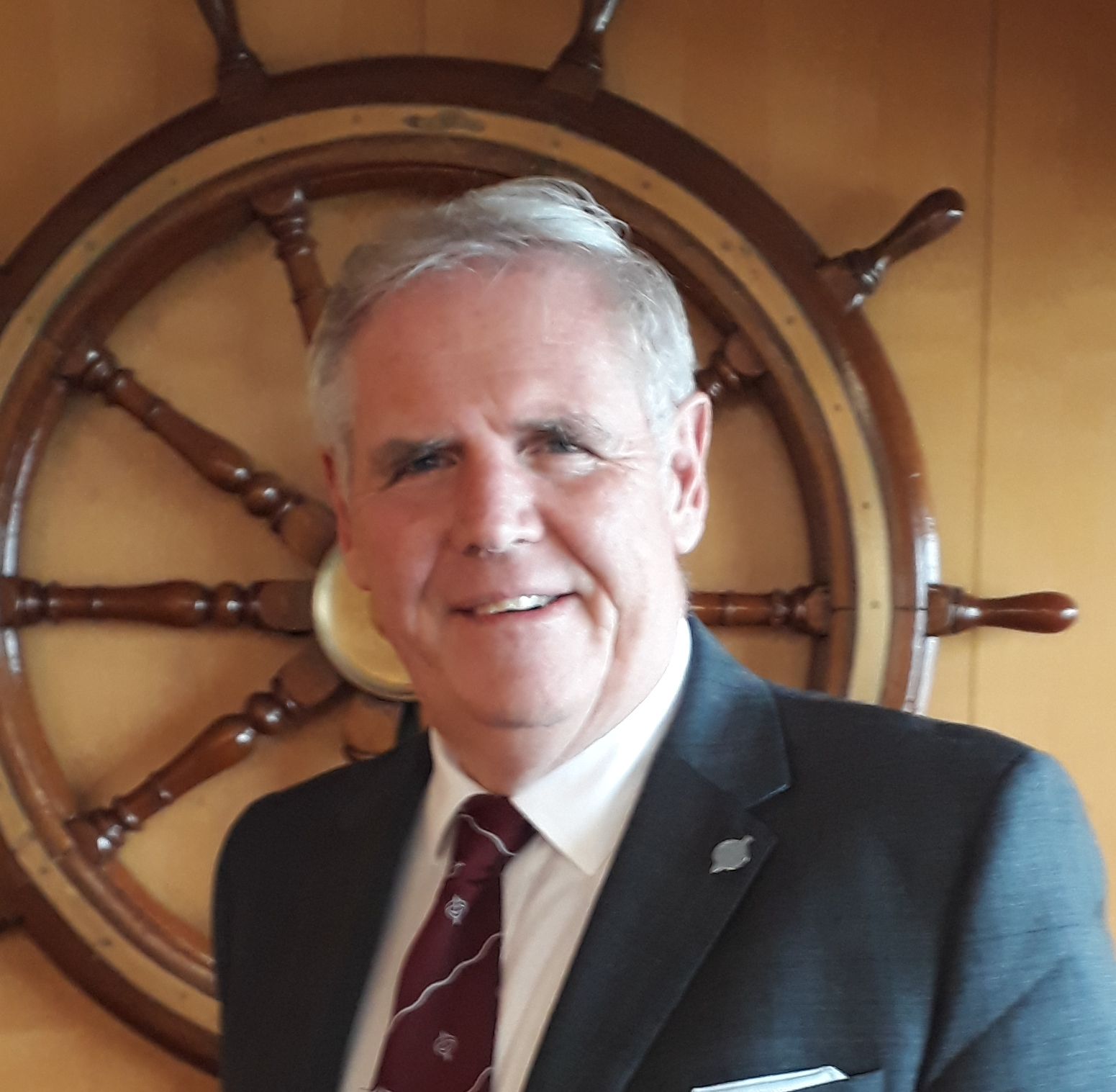 For 2023, I would like to see a move away from the blame game with more emphasis on learning from incidents. We are all concerned to see improved safety on ships but to achieve this we need transparency – everyone should be confident they can be open and honest about the ‘what happened’ and ‘why it happened’ without fear of retribution. Investigating the circumstances of an incident takes special skills and training but this task can be made easier if seafarers feel safe in admitting their mistakes. The sharing of findings with others is critical if we are all to learn for the future and I think that the biggest obstacle to this is a focus on culpability.
For 2023, I would like to see a move away from the blame game with more emphasis on learning from incidents. We are all concerned to see improved safety on ships but to achieve this we need transparency – everyone should be confident they can be open and honest about the ‘what happened’ and ‘why it happened’ without fear of retribution. Investigating the circumstances of an incident takes special skills and training but this task can be made easier if seafarers feel safe in admitting their mistakes. The sharing of findings with others is critical if we are all to learn for the future and I think that the biggest obstacle to this is a focus on culpability.
Jenny Braat, CEO, Danish Maritime
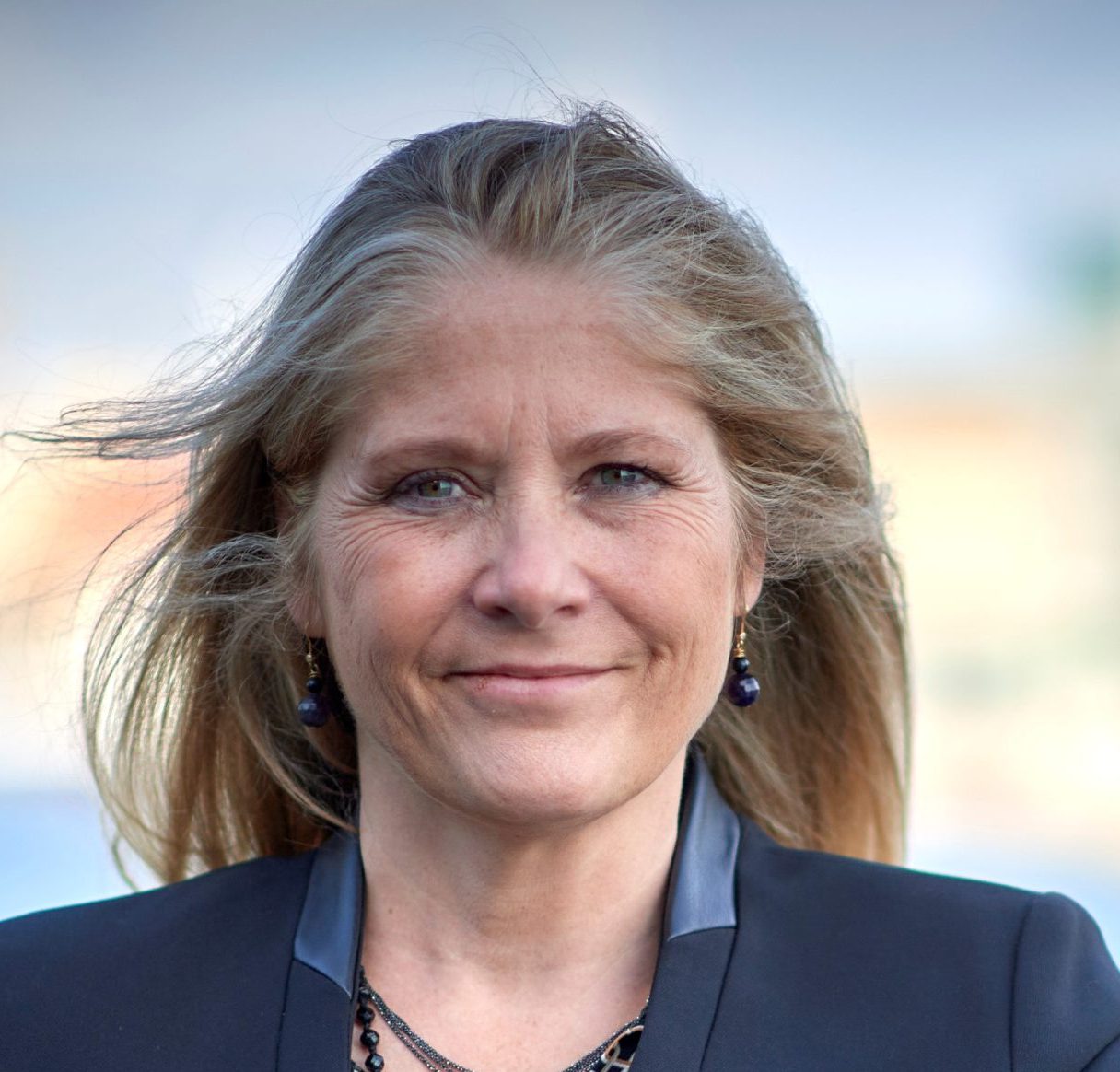
2023 will be a year with both big challenges and big possibilities. Ahead is the green transition of the global fleet and we need higher ambitions from the world leaders to succeed. The goal from our maritime industry is carbon neutrality by 2050. That requires serious investments into research and development on both European and international level – alongside much higher demands and better enforcement across borders. On national level we are also looking into assuring the needed amount of skilled labor which at the moment is a challenge. The global way forward is to reward the sustainable choice – both regarding new ships and regarding retrofitting and improvement of the present fleet – and to ensure the needed amount of new green fuels. Last, but not least, what we really need is a strong global enforcement of the international regulations as well as both bigger and quicker decisions from the IMO. Together we can reach the goals and we have the duty to act now!
Teo Eng Dih, Chief Executive of Maritime and Port Authority of Singapore (MPA)
 As a small, low-lying country with a vibrant economy, Singapore can seize green growth opportunities and prepare ourselves to address climate change. The Maritime and Port Authority of Singapore (MPA) will drive the decarbonisation and digitalisation of the maritime sector, lead globally to develop Green and Digital Shipping Corridors with key partners and foster consensus to accelerate decarbonisation at the International Maritime Organization. We recognise that there are many challenges in the development of low-carbon or net-zero fuels, such as biofuels, ammonia and hydrogen, and are active in developing new safety standards and training for seafarers. My 2023 wish is for Maritime Singapore to work with our global counterparts to turn vision into possibilities and co-develop initiatives towards a greener future.
As a small, low-lying country with a vibrant economy, Singapore can seize green growth opportunities and prepare ourselves to address climate change. The Maritime and Port Authority of Singapore (MPA) will drive the decarbonisation and digitalisation of the maritime sector, lead globally to develop Green and Digital Shipping Corridors with key partners and foster consensus to accelerate decarbonisation at the International Maritime Organization. We recognise that there are many challenges in the development of low-carbon or net-zero fuels, such as biofuels, ammonia and hydrogen, and are active in developing new safety standards and training for seafarers. My 2023 wish is for Maritime Singapore to work with our global counterparts to turn vision into possibilities and co-develop initiatives towards a greener future.
Hendrike Kühl, Policy Director, IUMI, International Union of Marine Insurance e.V.
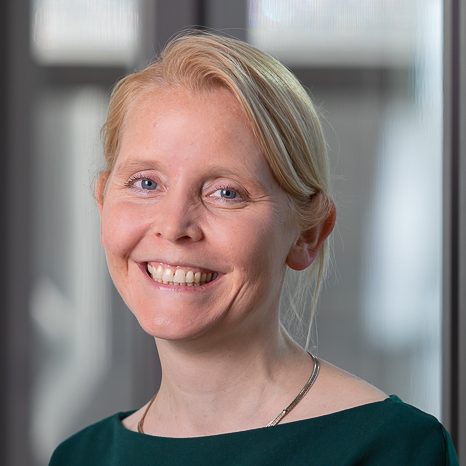 At the 106th session of the IMO’s Maritime Safety Committee in November 2022, the IMO Awards for Exceptional Bravery at Sea were presented to a group of courageous seafarers who risked their own lives to help others. The ceremony during which many of the incidents were outlined to the IMO delegates in detail, brought home how seafarers often make great sacrifices to enable global trade. My wish for the maritime industry in 2023 is that all of us who are involved in this great community keep at the forefront of our minds the people who sail the world’s ocean, even though many of us may be sitting at a desk rather than standing on the bridge.
At the 106th session of the IMO’s Maritime Safety Committee in November 2022, the IMO Awards for Exceptional Bravery at Sea were presented to a group of courageous seafarers who risked their own lives to help others. The ceremony during which many of the incidents were outlined to the IMO delegates in detail, brought home how seafarers often make great sacrifices to enable global trade. My wish for the maritime industry in 2023 is that all of us who are involved in this great community keep at the forefront of our minds the people who sail the world’s ocean, even though many of us may be sitting at a desk rather than standing on the bridge.
Claus Graugaard, Head of Onboard Vessel Solutions, Mærsk Mc-Kinney Møller Center for Zero Carbon Shipping
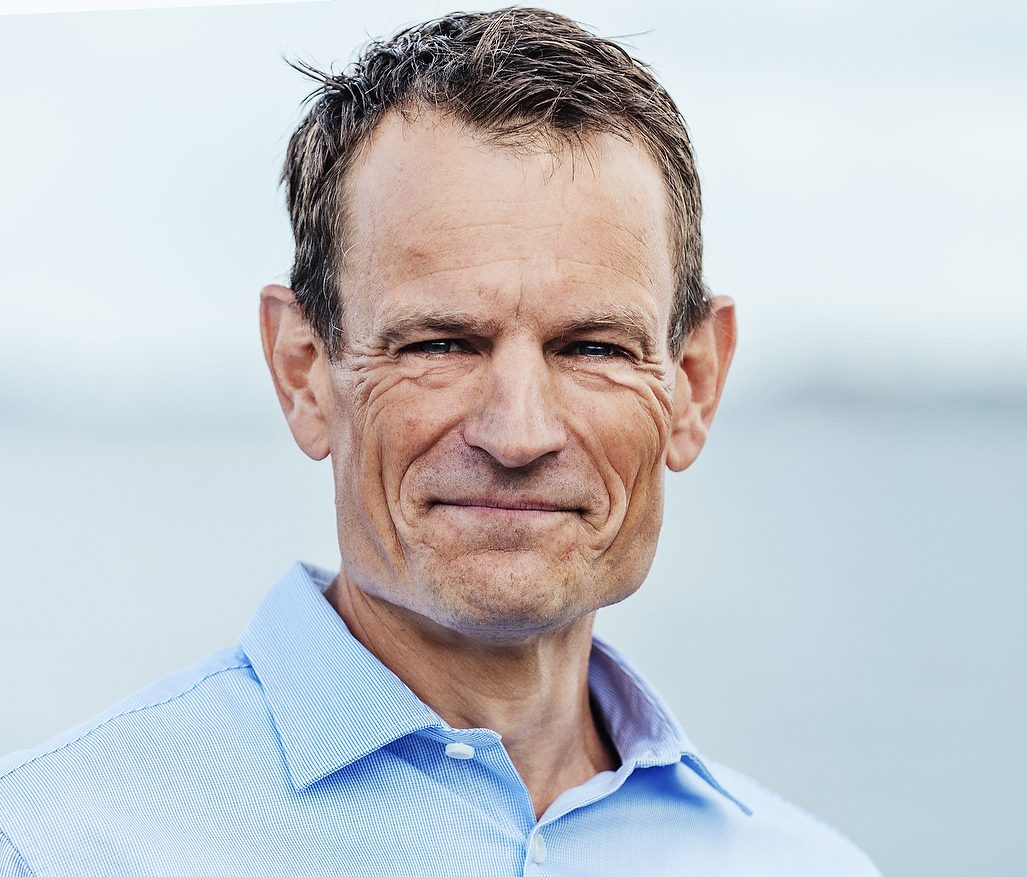 A just transition to zero-emission shipping is not only about technology and fuels, but also about incorporating a people-centered approach. A safe and just transition safeguards the industry’s ability to ensure that the skills and competencies of the future workforce match the needs required to successfully switch to alternative fuels within the designated timeline. A recent analysis by the Just Transition Maritime Task Force and DNV suggests that to align with the Paris 1.5 °C trajectory, 400,000 seafarers will require essential training or re- and upskilling by 2030, and 800,000 will require training by the mid-2030. At the Mærsk Mc-Kinney Møller Center for Zero Carbon Shipping, safety will be a core priority for 2023 as our wish is to ensure a safe and just transition for all. Safety must not become an afterthought in the eagerness to transform.
A just transition to zero-emission shipping is not only about technology and fuels, but also about incorporating a people-centered approach. A safe and just transition safeguards the industry’s ability to ensure that the skills and competencies of the future workforce match the needs required to successfully switch to alternative fuels within the designated timeline. A recent analysis by the Just Transition Maritime Task Force and DNV suggests that to align with the Paris 1.5 °C trajectory, 400,000 seafarers will require essential training or re- and upskilling by 2030, and 800,000 will require training by the mid-2030. At the Mærsk Mc-Kinney Møller Center for Zero Carbon Shipping, safety will be a core priority for 2023 as our wish is to ensure a safe and just transition for all. Safety must not become an afterthought in the eagerness to transform.
John Sypnowich, Chief Legal and Sustainability Officer of The CSL Group Inc.
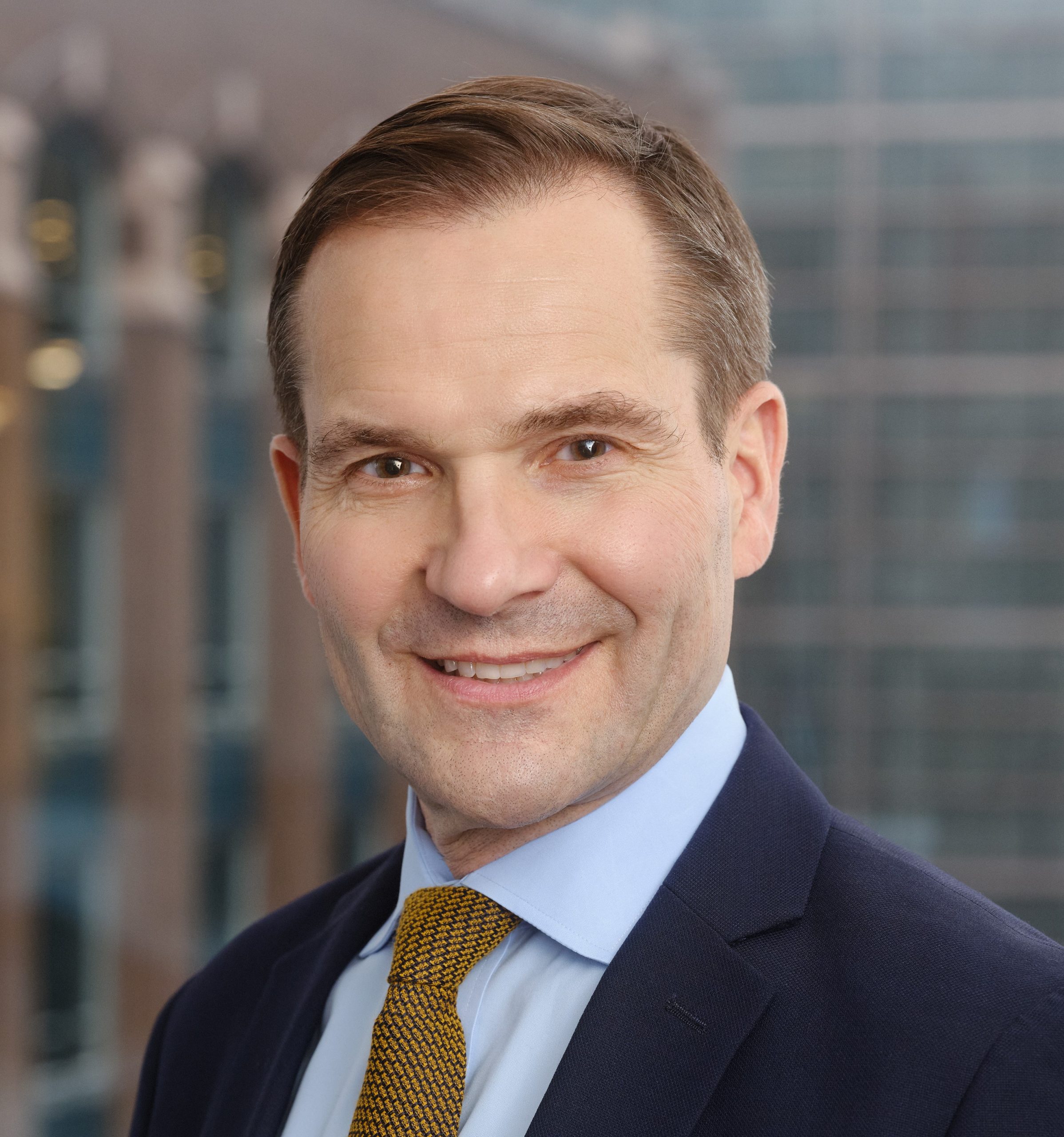 Collective action. The maritime industry is full of bright, creative, enthusiastic, and caring women and men. When they get together to solve a problem, the potential is enormous. Take, for example, the Maritime Anti-Corruption Network. A simple idea: create a network of shipowners to work together to eliminate corruption in the maritime ministry. Ten years later, more than half of the industry is on board and through best practice sharing and collective action, real progress is being made to solve a problem that no one thought could be solved. We need to apply the same strategy to carbon reduction and biodiversity. Working together, sharing best practices, and taking collective action, we will find solutions. And together we will make our industry cleaner safer for all.
Collective action. The maritime industry is full of bright, creative, enthusiastic, and caring women and men. When they get together to solve a problem, the potential is enormous. Take, for example, the Maritime Anti-Corruption Network. A simple idea: create a network of shipowners to work together to eliminate corruption in the maritime ministry. Ten years later, more than half of the industry is on board and through best practice sharing and collective action, real progress is being made to solve a problem that no one thought could be solved. We need to apply the same strategy to carbon reduction and biodiversity. Working together, sharing best practices, and taking collective action, we will find solutions. And together we will make our industry cleaner safer for all.
Dr. Kostas Gkonis, Director / Secretary General, Intercargo
 Embrace change and bold transformations! Our industry has traditionally been more reactive than pro-active. Old-school mindsets, strategies or practices, no longer deliver, not in the long term at least. At present time, there is an urgent need for open mindedness, innovation, and forward-looking mentality. While shipping still has its own unique story to tell, we need to learn lessons from other sectors, embrace broader trends which are transformative on a scale larger than shipping, in order to modernise our industry and secure for it a prominent place in tomorrow’s world.
Embrace change and bold transformations! Our industry has traditionally been more reactive than pro-active. Old-school mindsets, strategies or practices, no longer deliver, not in the long term at least. At present time, there is an urgent need for open mindedness, innovation, and forward-looking mentality. While shipping still has its own unique story to tell, we need to learn lessons from other sectors, embrace broader trends which are transformative on a scale larger than shipping, in order to modernise our industry and secure for it a prominent place in tomorrow’s world.
Sandra Welch, CEO, Seafarers Hospital Society
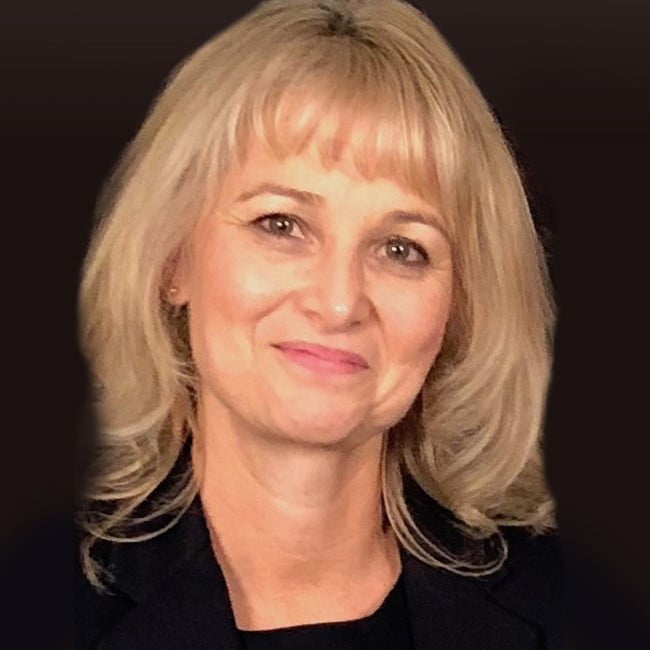 The Seafarers Hospital Society’s one wish for 2023 is the inculcation of a culture of care through robust and effective policies. While shipping has made significant gains in welfare, these remain inconsistently available to seafarers. Instead, there is significant value in instituting effective policy measures and advertising them to seafarers and shore-based staff. These would improve physical health, diversity and mental wellbeing, allowing our industry to remain competitive when it comes to recruitment and retention. And documenting year-on-year outcomes with KPIs would provide much needed evidence of existing conditions, allowing us to bridge gaps in welfare. Working together in this manner will build a truly diverse, sustainable and healthy future for all of us in the maritime industry.
The Seafarers Hospital Society’s one wish for 2023 is the inculcation of a culture of care through robust and effective policies. While shipping has made significant gains in welfare, these remain inconsistently available to seafarers. Instead, there is significant value in instituting effective policy measures and advertising them to seafarers and shore-based staff. These would improve physical health, diversity and mental wellbeing, allowing our industry to remain competitive when it comes to recruitment and retention. And documenting year-on-year outcomes with KPIs would provide much needed evidence of existing conditions, allowing us to bridge gaps in welfare. Working together in this manner will build a truly diverse, sustainable and healthy future for all of us in the maritime industry.
Han Chao, ASA Seafarers’ Committee Chairman
 From our special contributions made during the Covid-19 Pandemic to ensuring the global supply chain, we wish that we could be understood and recognized by the international community as true key workers and valued and treated as the essential human resources in the shipping industry, thereby we could enjoy the rights and welfare laid down in the Maritime Labour Convention, 2006. In particular, we wish, in 2023, the Pandemic could be completely over, shipping would be more prosperous and our seafaring profession as well as our income would be truly decent.
From our special contributions made during the Covid-19 Pandemic to ensuring the global supply chain, we wish that we could be understood and recognized by the international community as true key workers and valued and treated as the essential human resources in the shipping industry, thereby we could enjoy the rights and welfare laid down in the Maritime Labour Convention, 2006. In particular, we wish, in 2023, the Pandemic could be completely over, shipping would be more prosperous and our seafaring profession as well as our income would be truly decent.
Sara Baade, CEO, Sailors’ Society, Chair of The International Christian Maritime Association (ICMA)
 My wish is for peace in Ukraine and calmer waters ahead for all the world’s seafarers. As a charity leading in wellness and mental health training and resources, we saw how the conflict added to the stress caused by Covid restrictions for crew around the world. Thankfully, we have a holistic approach to seafarer wellness that has been able to help and in 2023 we launch our new e-learning platform and plan more global cadet conferences, both will help with seafarer mental health and wellbeing. Meanwhile, our free helpline and peer-to-peer support groups are always there when they need to talk. The last few years have been tough and I wish for an easing in the troubles seafarers face.
My wish is for peace in Ukraine and calmer waters ahead for all the world’s seafarers. As a charity leading in wellness and mental health training and resources, we saw how the conflict added to the stress caused by Covid restrictions for crew around the world. Thankfully, we have a holistic approach to seafarer wellness that has been able to help and in 2023 we launch our new e-learning platform and plan more global cadet conferences, both will help with seafarer mental health and wellbeing. Meanwhile, our free helpline and peer-to-peer support groups are always there when they need to talk. The last few years have been tough and I wish for an easing in the troubles seafarers face.
David Hammond, CEO, Barrister (Non-practising), Human Rights at Sea
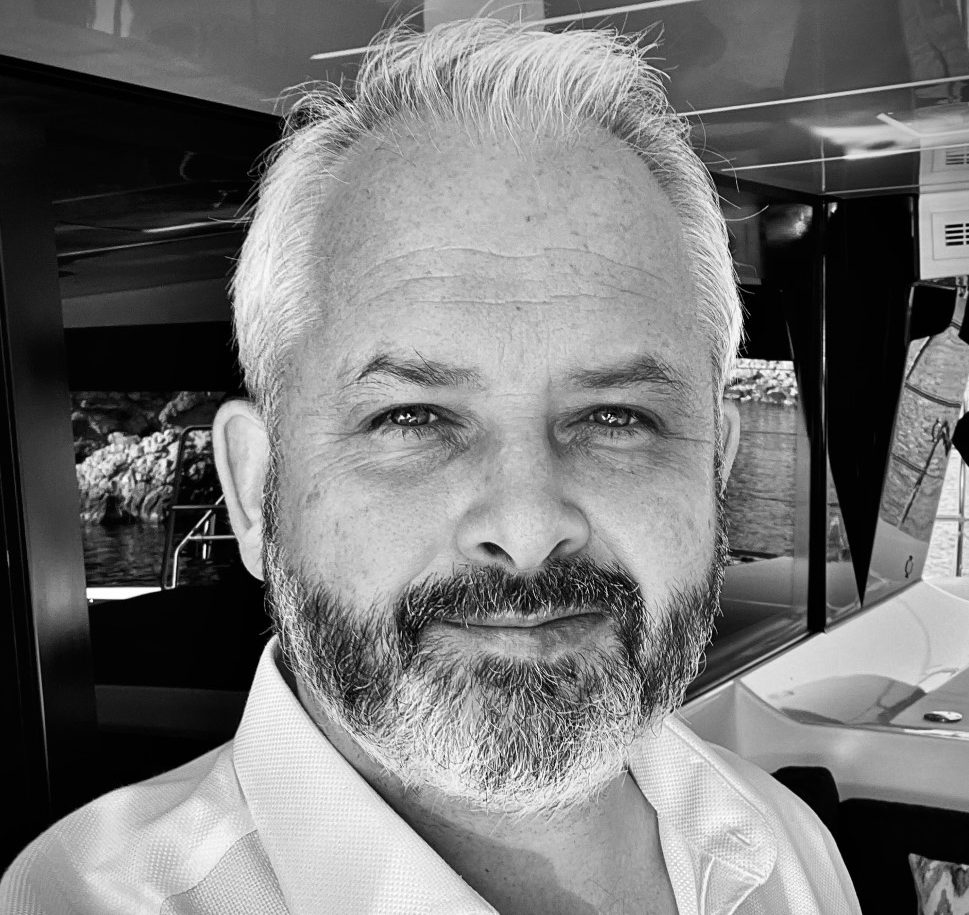 The onset of a new year will be challenging for many people, especially if you are away from home and your loved ones, struggling with your mental health, poor working conditions, or you are caught in and around conflict and are not sure when you will see your family again. Human Rights at Sea continues to bring hope alongside state and commercial entities as well as welfare colleagues to persons who need help, protection and access to justice throughout the maritime environment. Our wish for 2023 is to witness fundamental human rights protections better applied at sea, as they are on land. We may not all be in the same boat, but we are all in the same storm, so we must unite, be resilient and never give up fighting for what is right in 2023 and beyond.
The onset of a new year will be challenging for many people, especially if you are away from home and your loved ones, struggling with your mental health, poor working conditions, or you are caught in and around conflict and are not sure when you will see your family again. Human Rights at Sea continues to bring hope alongside state and commercial entities as well as welfare colleagues to persons who need help, protection and access to justice throughout the maritime environment. Our wish for 2023 is to witness fundamental human rights protections better applied at sea, as they are on land. We may not all be in the same boat, but we are all in the same storm, so we must unite, be resilient and never give up fighting for what is right in 2023 and beyond.
Eleni Polychronopoulou, President, HEMEXPO – Hellenic Marine Equipment Manufacturers & Exporters
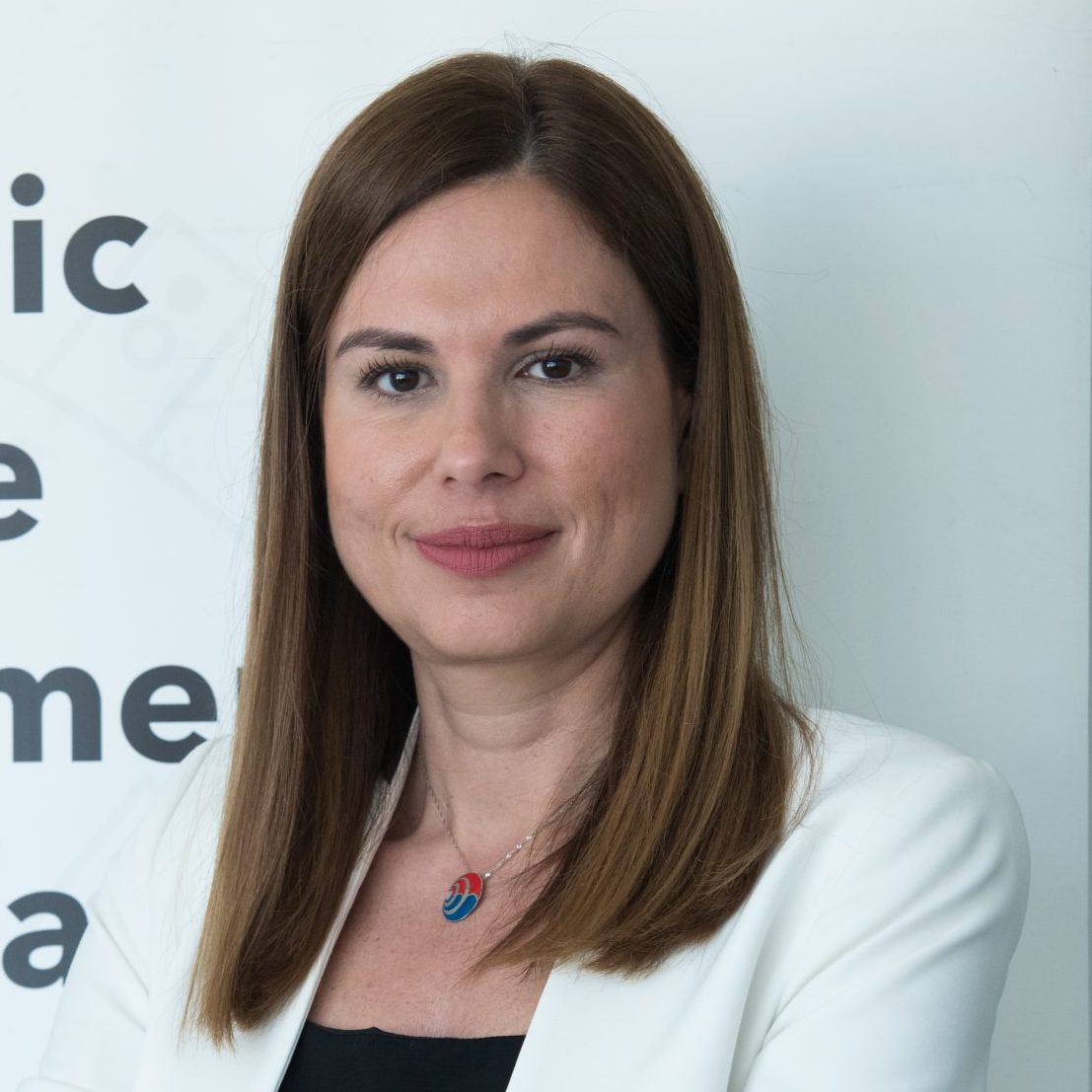 My first wish for 2023 is peace around the world. Regarding shipping, it has been said many times before, but in order for shipping to be able to respond to the enormous challenges it faces, partnerships and collaboration are crucial. We should work together at every level and between each link in the supply chain connected to the ship. The green transition also needs to be a top priority for the year ahead. Without the shipping industry, global trade would grind to a halt; the transportation of raw materials, food, energy products and finished products would stop. However, ships need fuel to move and the new environmental protection regulations that will come into force on 1 January 2023 mean everyone – energy giants, manufacturers, shipyards, charterers – will need to take their share of the responsibility or risk the green transition being delayed. Working hand in hand, I am optimistic that in the end we will succeed to have a greener planet.
My first wish for 2023 is peace around the world. Regarding shipping, it has been said many times before, but in order for shipping to be able to respond to the enormous challenges it faces, partnerships and collaboration are crucial. We should work together at every level and between each link in the supply chain connected to the ship. The green transition also needs to be a top priority for the year ahead. Without the shipping industry, global trade would grind to a halt; the transportation of raw materials, food, energy products and finished products would stop. However, ships need fuel to move and the new environmental protection regulations that will come into force on 1 January 2023 mean everyone – energy giants, manufacturers, shipyards, charterers – will need to take their share of the responsibility or risk the green transition being delayed. Working hand in hand, I am optimistic that in the end we will succeed to have a greener planet.
Nick Brown, CEO, Lloyd’s Register
 I would ask for the role of seafarers and shipping to receive much more recognition from the wider public for ensuring food and critical supplies of energy and goods reach global communities in an ever-volatile world.
I would ask for the role of seafarers and shipping to receive much more recognition from the wider public for ensuring food and critical supplies of energy and goods reach global communities in an ever-volatile world.
Ioannis Chiotopoulos, Senior Vice President Regional Manager South East Europe, Middle East and Africa, DNV
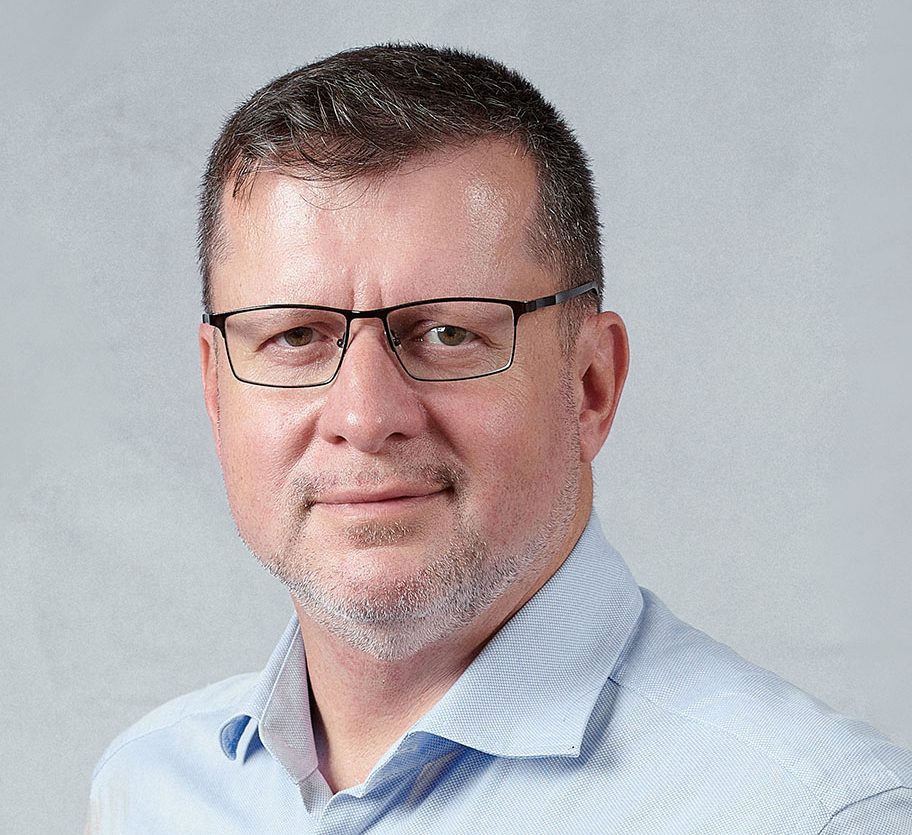 Facing all these challenges ahead, may our partnerships and bonds become stronger in this new year. With lots of hope for a safer and greener maritime industry globally, I am sending warm holiday wishes to all of you and your families.
Facing all these challenges ahead, may our partnerships and bonds become stronger in this new year. With lots of hope for a safer and greener maritime industry globally, I am sending warm holiday wishes to all of you and your families.
Tom Bartošák-Harlow, Director of Communications, UK Chamber of Shipping
 2023 is the year where we need to see ambitious targets and strategies to decarbonise the shipping industry both internationally at the International Maritime Organization and here in the UK. These strategies need to ensure we have the infrastructure and skills we need to give shipping companies the confidence to invest in measures to deliver net zero across the sector. Alongside this, we also hope to see greater recognition of the vital role shipping plays in the lives of people across the world.
2023 is the year where we need to see ambitious targets and strategies to decarbonise the shipping industry both internationally at the International Maritime Organization and here in the UK. These strategies need to ensure we have the infrastructure and skills we need to give shipping companies the confidence to invest in measures to deliver net zero across the sector. Alongside this, we also hope to see greater recognition of the vital role shipping plays in the lives of people across the world.
Andrew Stephens, Executive Director, Sustainable Shipping Initiative︱Ship Recycling Transparency Initiative
 My wish for 2023 is for shipping to embrace all aspects of sustainability. As a maritime industry, we need to embrace our responsibility towards people and the planet. We can do this by honouring and protecting our seafarers – by supporting their mental and physical health, ensuring long-term career progression and securing their position in shipping’s future. We also need to respect our environment by supporting and conserving the various ecosystems that we impact and operate in – be it the oceans we rely on daily, or the various ecosystems affected by our operations and fuel choices.
My wish for 2023 is for shipping to embrace all aspects of sustainability. As a maritime industry, we need to embrace our responsibility towards people and the planet. We can do this by honouring and protecting our seafarers – by supporting their mental and physical health, ensuring long-term career progression and securing their position in shipping’s future. We also need to respect our environment by supporting and conserving the various ecosystems that we impact and operate in – be it the oceans we rely on daily, or the various ecosystems affected by our operations and fuel choices.
George Teriakidis, Area Manager, East Mediterranean & Black Sea, Maritime, DNV
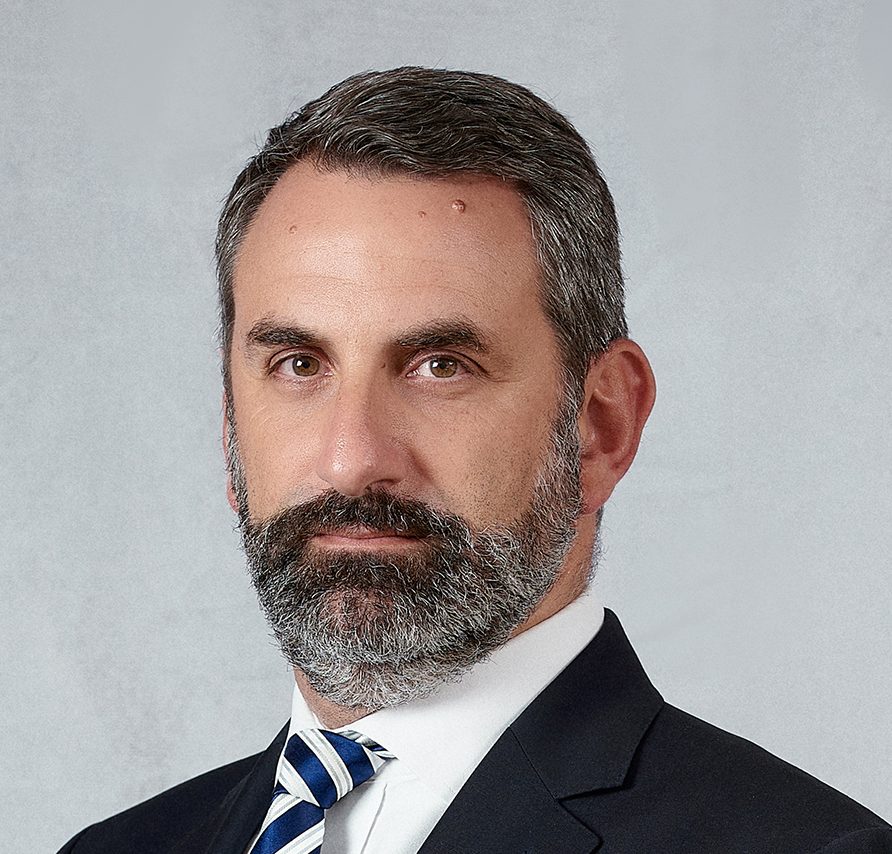 Health and happiness is a classic wish that applies to all and not just shipping. And looking back to COVID period and the difficulties crew members have gone through, you can’t blame me for these, classic wishes. On top of that, taking in consideration what Ukraine crew members have and still go through I will stick to these two simple things. Technical matters will be resolved, alternative fuels will eventually find their way to the markets, autonomous or not, ships will continue to sail around the world. With so many uncertainties, my only wish for the maritime industry is for all of us to stay healthy and try to find happiness in whatever we do.
Health and happiness is a classic wish that applies to all and not just shipping. And looking back to COVID period and the difficulties crew members have gone through, you can’t blame me for these, classic wishes. On top of that, taking in consideration what Ukraine crew members have and still go through I will stick to these two simple things. Technical matters will be resolved, alternative fuels will eventually find their way to the markets, autonomous or not, ships will continue to sail around the world. With so many uncertainties, my only wish for the maritime industry is for all of us to stay healthy and try to find happiness in whatever we do.
Atty. Iris Baguilat, President, Döhle Seafront Crewing (Manila), Inc.
 For the whole industry not to lose the collaborative spirit we demonstrated during the pandemic and not to retreat to our individualistic focus as we emerge from COVID. My main focus has always been the Philippine seafaring industry, and my wish list is long and winded. Mainly, I ask that the Philippine government and industry get our act together so that we can resolve issues that are otherwise solvable and controllable and remove unnecessary pain. I wish safe sailing to our ships and peace and joy to the crew and their families.
For the whole industry not to lose the collaborative spirit we demonstrated during the pandemic and not to retreat to our individualistic focus as we emerge from COVID. My main focus has always been the Philippine seafaring industry, and my wish list is long and winded. Mainly, I ask that the Philippine government and industry get our act together so that we can resolve issues that are otherwise solvable and controllable and remove unnecessary pain. I wish safe sailing to our ships and peace and joy to the crew and their families.
Paul Hexter, President of Waterfront Shipping
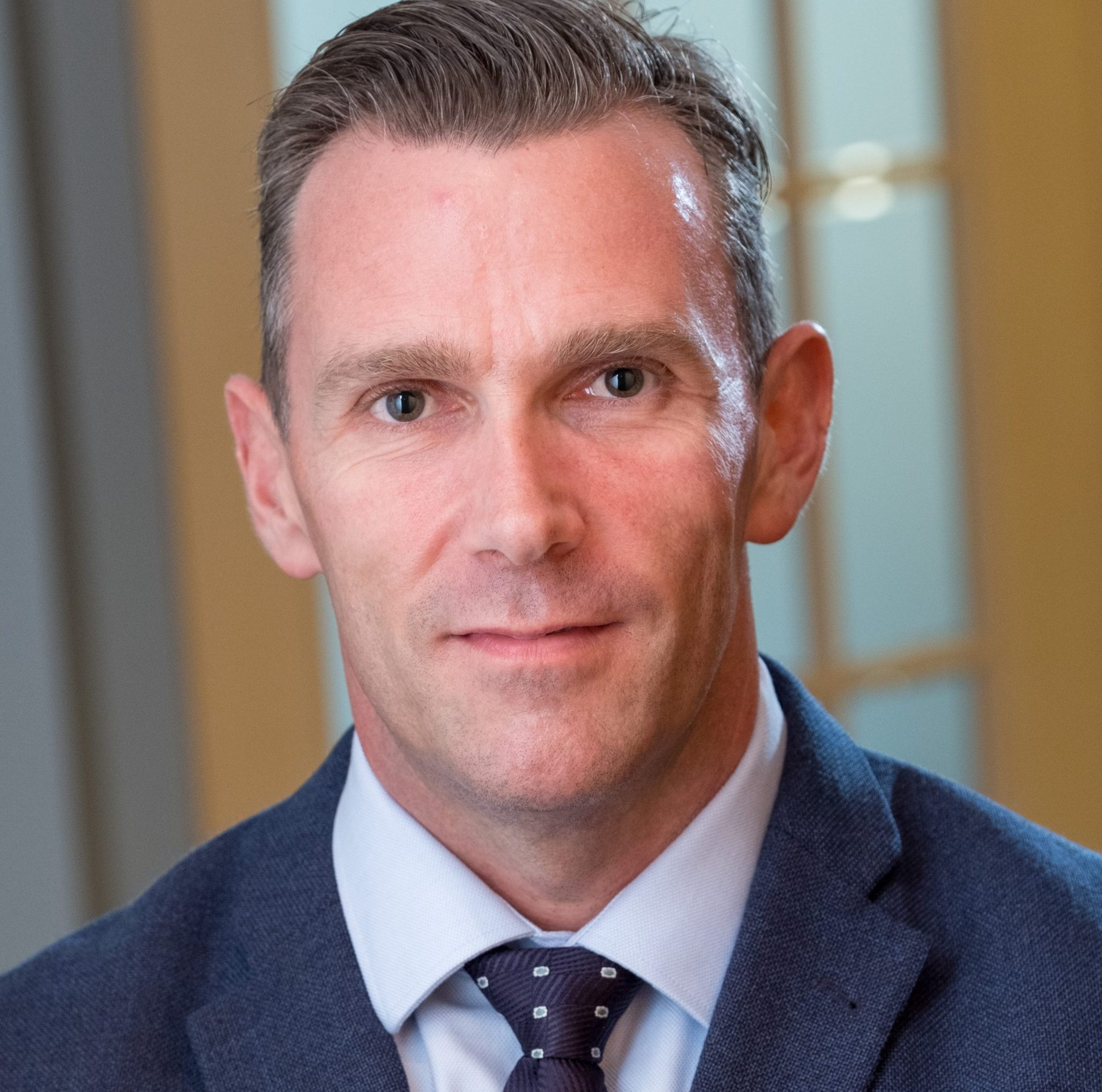 On behalf of Waterfront Shipping, I wish everyone working in the maritime industry a safe and happy holiday season and a prosperous New Year. As the operator of the world’s largest fleet of methanol-fuel vessels, we focus on building a safe and healthy work environment and support a strengthening safety culture on board our ships. Seafarers, in particular, experience long periods away from family and friends, with instances of isolation and tough living conditions at sea—all of which can be physically and mentally taxing. I invite everyone to join us in thanking seafarers for the essential work they do to make our lives better and to support mental health awareness and related programs in our industry
On behalf of Waterfront Shipping, I wish everyone working in the maritime industry a safe and happy holiday season and a prosperous New Year. As the operator of the world’s largest fleet of methanol-fuel vessels, we focus on building a safe and healthy work environment and support a strengthening safety culture on board our ships. Seafarers, in particular, experience long periods away from family and friends, with instances of isolation and tough living conditions at sea—all of which can be physically and mentally taxing. I invite everyone to join us in thanking seafarers for the essential work they do to make our lives better and to support mental health awareness and related programs in our industry
Fabiana Martins, Partner, SMA (Brazil)
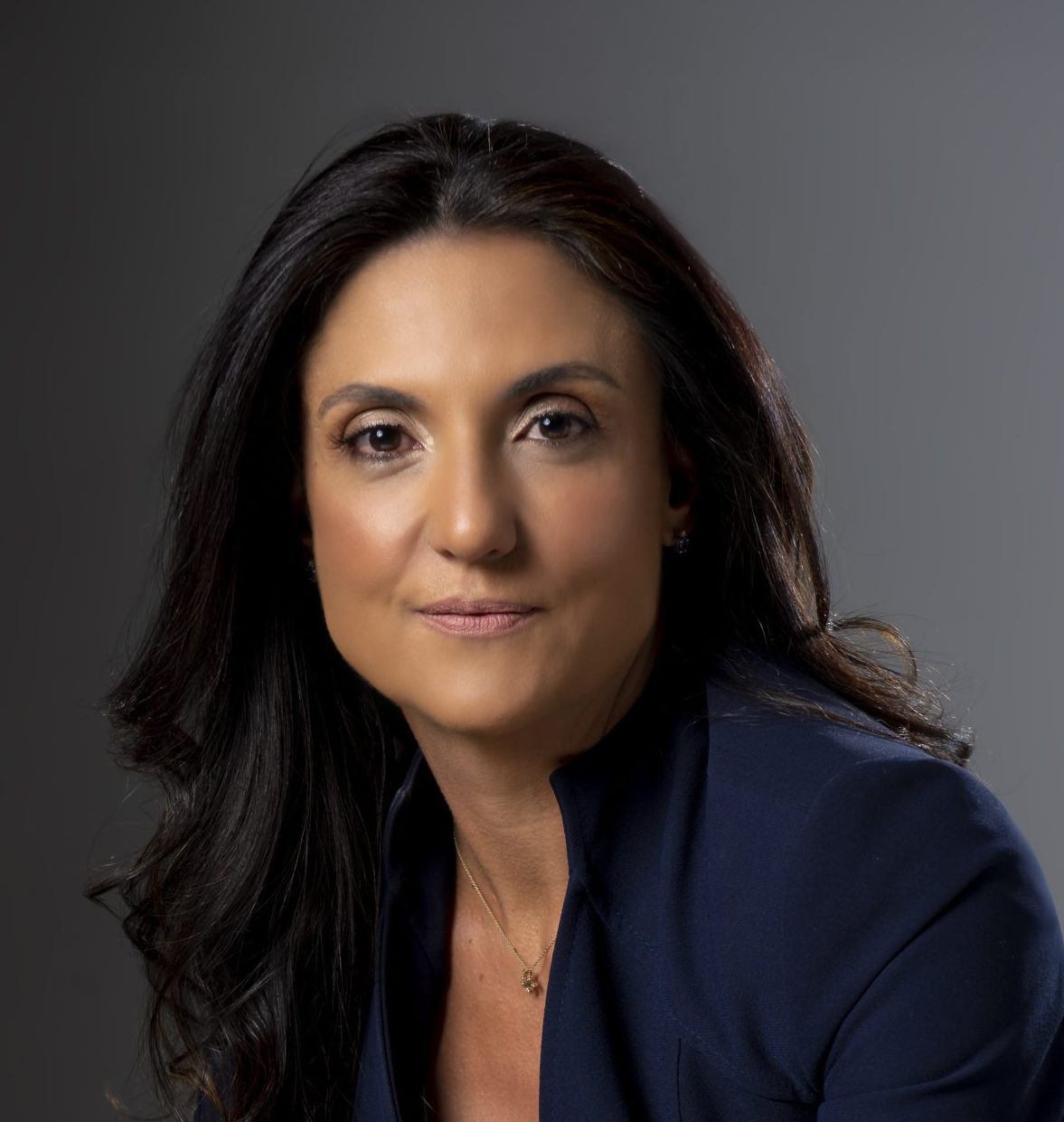 My wish would be to see the industry moving from “The hidden” to the “The leading” industry specially on sustainable development discussions. We all know the importance of logistics and shipping in global trade and sustainable development but I still miss more cross industry discussions and understanding of all society about the maritime industry´s role and importance. Shipping can do much more as a strategic ally to a fairer world facilitating trade and routes to all. This would be my wish for 2023 if I could ask only one.
My wish would be to see the industry moving from “The hidden” to the “The leading” industry specially on sustainable development discussions. We all know the importance of logistics and shipping in global trade and sustainable development but I still miss more cross industry discussions and understanding of all society about the maritime industry´s role and importance. Shipping can do much more as a strategic ally to a fairer world facilitating trade and routes to all. This would be my wish for 2023 if I could ask only one.
Capt. Yves Vandenborn, Director of Loss Prevention, Standard Club
 Seafarer wellbeing continues to be on the forefront of my agenda in 2023. Shipping leads 90% of world trade, yet the attention and consideration towards seafarers is vastly disproportionate to that. Internally, the maritime industry must integrate seafarer wellbeing considerations into business strategies and core processes. We must first recognise seafarers as assets and prioritise their interests before we can expect the international community to do the same. Externally, campaigns to raise awareness of the industry and how we fit into the supply chain would promote and shape the image and importance of shipping in the eyes of the public. As I wish you compliments of the season, might I also leave you with the phrase “no shipping, no shopping”.
Seafarer wellbeing continues to be on the forefront of my agenda in 2023. Shipping leads 90% of world trade, yet the attention and consideration towards seafarers is vastly disproportionate to that. Internally, the maritime industry must integrate seafarer wellbeing considerations into business strategies and core processes. We must first recognise seafarers as assets and prioritise their interests before we can expect the international community to do the same. Externally, campaigns to raise awareness of the industry and how we fit into the supply chain would promote and shape the image and importance of shipping in the eyes of the public. As I wish you compliments of the season, might I also leave you with the phrase “no shipping, no shopping”.
Carleen Lyden Walker, Chief Evolution Officer, SHIPPINGInsight, IMO Goodwill Maritime Ambassador
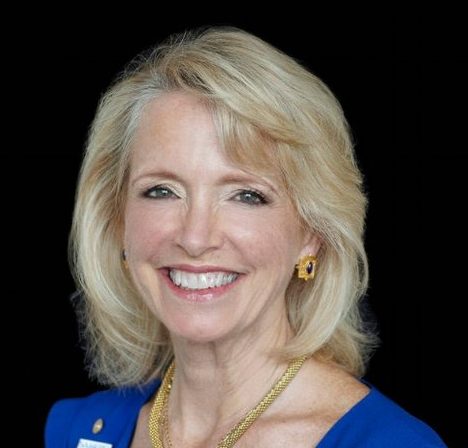 For millennia, the maritime industry has kept the lights burning, supplied the world with food, and helped enable society to advance. Because of its siloed roots, however, this essential service remains nearly invisible to the public. What I wish for the industry is to increase the public’s awareness and understanding of our value proposition through a collaborative communications program, such as the Global Maritime Information Coalition—a global resource to benefit the industry and communicate its worth to the public. Climate change is putting our industry in the crosshairs of global scrutiny. Through leveraging today’s communication tools along with a unification of the global maritime community, we can increase our visibility and improve the public’s perception of our activities.
For millennia, the maritime industry has kept the lights burning, supplied the world with food, and helped enable society to advance. Because of its siloed roots, however, this essential service remains nearly invisible to the public. What I wish for the industry is to increase the public’s awareness and understanding of our value proposition through a collaborative communications program, such as the Global Maritime Information Coalition—a global resource to benefit the industry and communicate its worth to the public. Climate change is putting our industry in the crosshairs of global scrutiny. Through leveraging today’s communication tools along with a unification of the global maritime community, we can increase our visibility and improve the public’s perception of our activities.
Captain Randall Lund, Senior Marine Risk Consultant, Allianz Risk Consulting, Allianz Global Corporate & Specialty (AGCS)
 My top wish for the maritime industry in 2023 is for seafarers to have access to the tools and resources needed to make every voyage a safe and successful one. To this end, compliance of the international hazardous materials (DG) regulations found in IMO’s IMDG publication is critical. Vessel fires and explosions are the leading cause of monetary loss for the industry with many incidents a result of misdeclared hazardous materials. Crews often have limited resources to handle these fires, and vessels are often abandoned. Regulatory agencies must enforce established international regulations and expedite the regulatory process for new ones to level the playing field. The industry must weed out unscrupulous characters who prioritize the bottom line over crew safety
My top wish for the maritime industry in 2023 is for seafarers to have access to the tools and resources needed to make every voyage a safe and successful one. To this end, compliance of the international hazardous materials (DG) regulations found in IMO’s IMDG publication is critical. Vessel fires and explosions are the leading cause of monetary loss for the industry with many incidents a result of misdeclared hazardous materials. Crews often have limited resources to handle these fires, and vessels are often abandoned. Regulatory agencies must enforce established international regulations and expedite the regulatory process for new ones to level the playing field. The industry must weed out unscrupulous characters who prioritize the bottom line over crew safety
Danielle Centeno, Loss Prevention Executive, American P&I Club
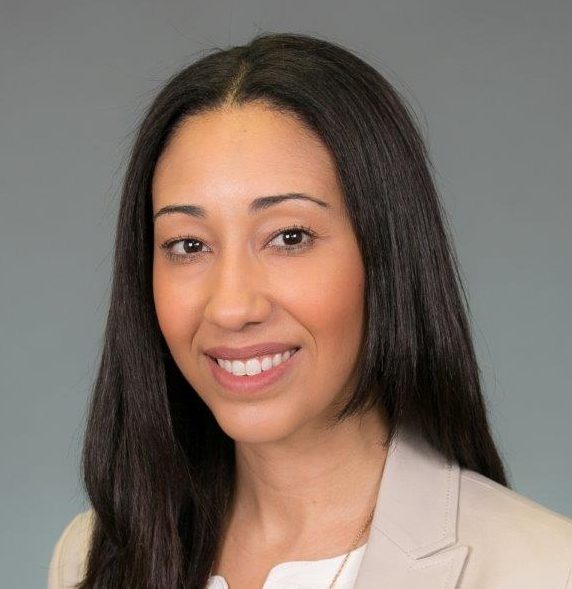 As we head into the new year our wish is for a safer and healthier maritime industry. Our hope is that 2023 brings increased respect and admiration for the power of our industries workforce. Despite location or trade, every effort should be made to ensure the best living, working and health conditions are available to our seafarers and port operators. If provided with necessary tools and training to work safely, we can reduce maritime tragedies and casualties both at sea and in port. It is our mission and responsibility to care, now and for the future of our industry. This is our wish.
As we head into the new year our wish is for a safer and healthier maritime industry. Our hope is that 2023 brings increased respect and admiration for the power of our industries workforce. Despite location or trade, every effort should be made to ensure the best living, working and health conditions are available to our seafarers and port operators. If provided with necessary tools and training to work safely, we can reduce maritime tragedies and casualties both at sea and in port. It is our mission and responsibility to care, now and for the future of our industry. This is our wish.
Corey Ranslem, CEO, Dryad Global
 A better-coordinated effort across the public and private sector when it comes to cybersecurity and a deeper acceptance that the vulnerabilities are created by people as much as technology and that consequently, the solution takes time to mature. The threat actors have not yet focused on the maritime sector and we believe it is only a matter of time.
A better-coordinated effort across the public and private sector when it comes to cybersecurity and a deeper acceptance that the vulnerabilities are created by people as much as technology and that consequently, the solution takes time to mature. The threat actors have not yet focused on the maritime sector and we believe it is only a matter of time.
Namrata Nadkarni, Founder and CEO, Intent Communications
 My wish for 2023 is for true knowledge sharing and collaboration in the maritime sector – which includes talking about our failures. We are on the cusp of major transitions to a low carbon future that will be highly digital and increasingly automated. Mistakes are a natural part of the learning process and companies should not feel ashamed if they do not get it right on the first try. I hope that we can create a collaborative atmosphere in which we celebrate progress in all its forms, and that includes lessons learned from instances where we do not succeed.
My wish for 2023 is for true knowledge sharing and collaboration in the maritime sector – which includes talking about our failures. We are on the cusp of major transitions to a low carbon future that will be highly digital and increasingly automated. Mistakes are a natural part of the learning process and companies should not feel ashamed if they do not get it right on the first try. I hope that we can create a collaborative atmosphere in which we celebrate progress in all its forms, and that includes lessons learned from instances where we do not succeed.
Martin Foley, Chief Executive Officer/European Regional Coordinator, Stella Maris
 Stella Maris would like the industry to work with us to promote the ‘S’ in ESG. But let’s talk less about seafarer ‘wellbeing’ and ‘happiness’ and their promotion via programmes which, all too often, are a world away from the reality of seafarers’ lives. Rather, let’s choose just one issue where we believe a real difference can be made. Let’s work together to reduce the record levels of abandonment, ensuring the safe passage home of seafarers affected and prompt remuneration. Seafarers should not have to take responsibility for the negligence and mistakes of others.
Stella Maris would like the industry to work with us to promote the ‘S’ in ESG. But let’s talk less about seafarer ‘wellbeing’ and ‘happiness’ and their promotion via programmes which, all too often, are a world away from the reality of seafarers’ lives. Rather, let’s choose just one issue where we believe a real difference can be made. Let’s work together to reduce the record levels of abandonment, ensuring the safe passage home of seafarers affected and prompt remuneration. Seafarers should not have to take responsibility for the negligence and mistakes of others.
Pia Meling, Managing Director, Grieg Green
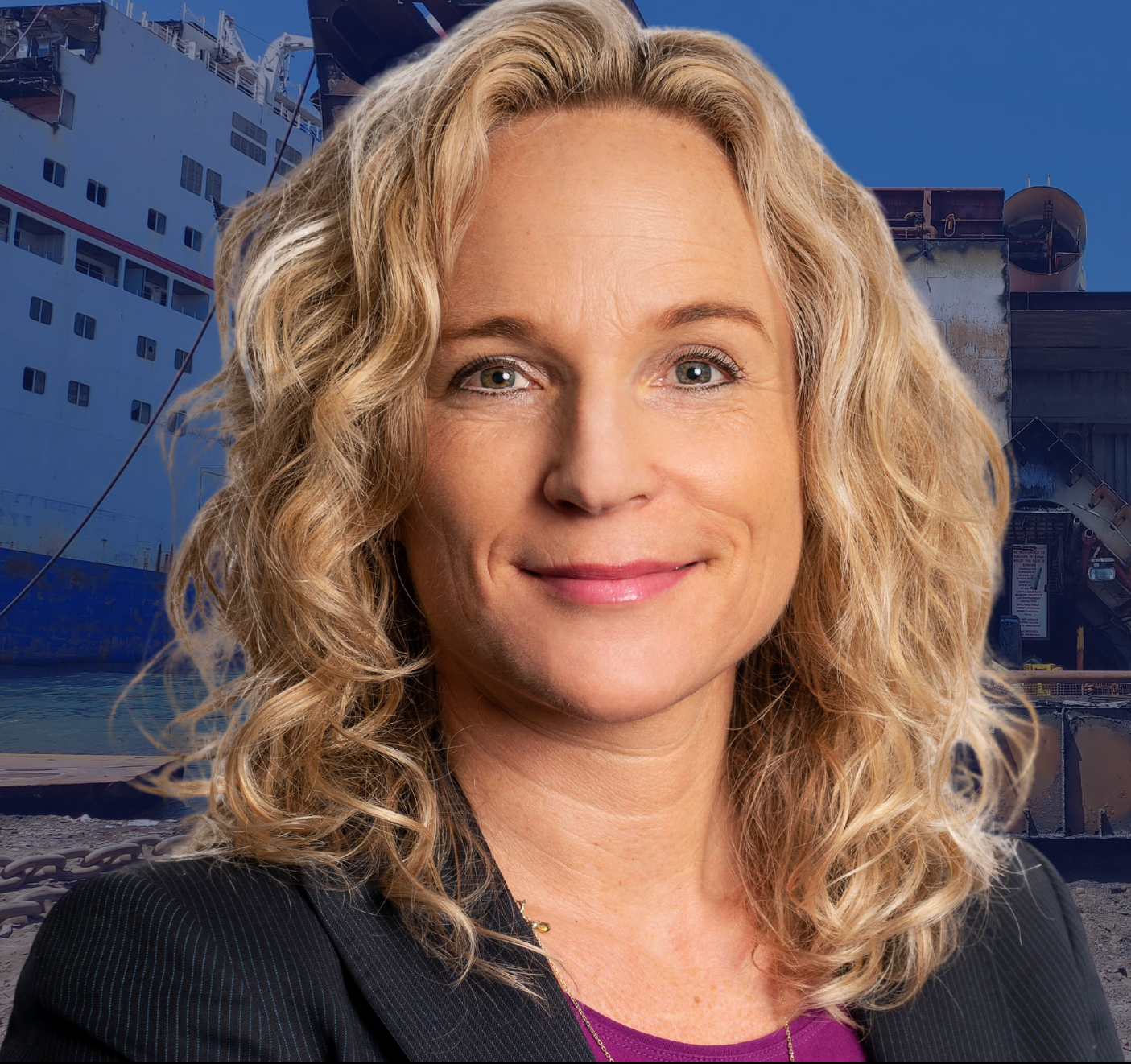 I wish that the maritime industry could move from talking about the ambitious ESG targets we set for 2030 and 2050 to a focus on making real, tangible impact in 2023. We can all cut emissions, ensure human rights, and encourage diversity and inclusion; either in our own operations or in making better procurement decisions (perhaps not always go for the cheapest option?) Most of all we need to be transparent about how we are incrementally working to improve, what we learn and what mistakes we make on the way. If we are open for collaborations and sharing of best practice, we can inspire peers and other stakeholders in the industry to act too.
I wish that the maritime industry could move from talking about the ambitious ESG targets we set for 2030 and 2050 to a focus on making real, tangible impact in 2023. We can all cut emissions, ensure human rights, and encourage diversity and inclusion; either in our own operations or in making better procurement decisions (perhaps not always go for the cheapest option?) Most of all we need to be transparent about how we are incrementally working to improve, what we learn and what mistakes we make on the way. If we are open for collaborations and sharing of best practice, we can inspire peers and other stakeholders in the industry to act too.
Antonis Trakakis, Technical Director, Marine, RINA
 My wish for 2023 would go especially to the Greek maritime community: in turbulent times, amidst geopolitical crises and energy transition, to maintain the lead and become even stronger. Greeks have proved many times in the past years, that have an acute sense of how the trends are developing, and by demonstrating rapid reflexes have succeeded to ride the waves of change. I wish this continues in the next and many more years to come, and our country maintains the lead that has been acquired with big efforts and consistent adhesion to quality of operation and services offered.
My wish for 2023 would go especially to the Greek maritime community: in turbulent times, amidst geopolitical crises and energy transition, to maintain the lead and become even stronger. Greeks have proved many times in the past years, that have an acute sense of how the trends are developing, and by demonstrating rapid reflexes have succeeded to ride the waves of change. I wish this continues in the next and many more years to come, and our country maintains the lead that has been acquired with big efforts and consistent adhesion to quality of operation and services offered.
Krishna Ruparelia, Head of Operations, SGMF
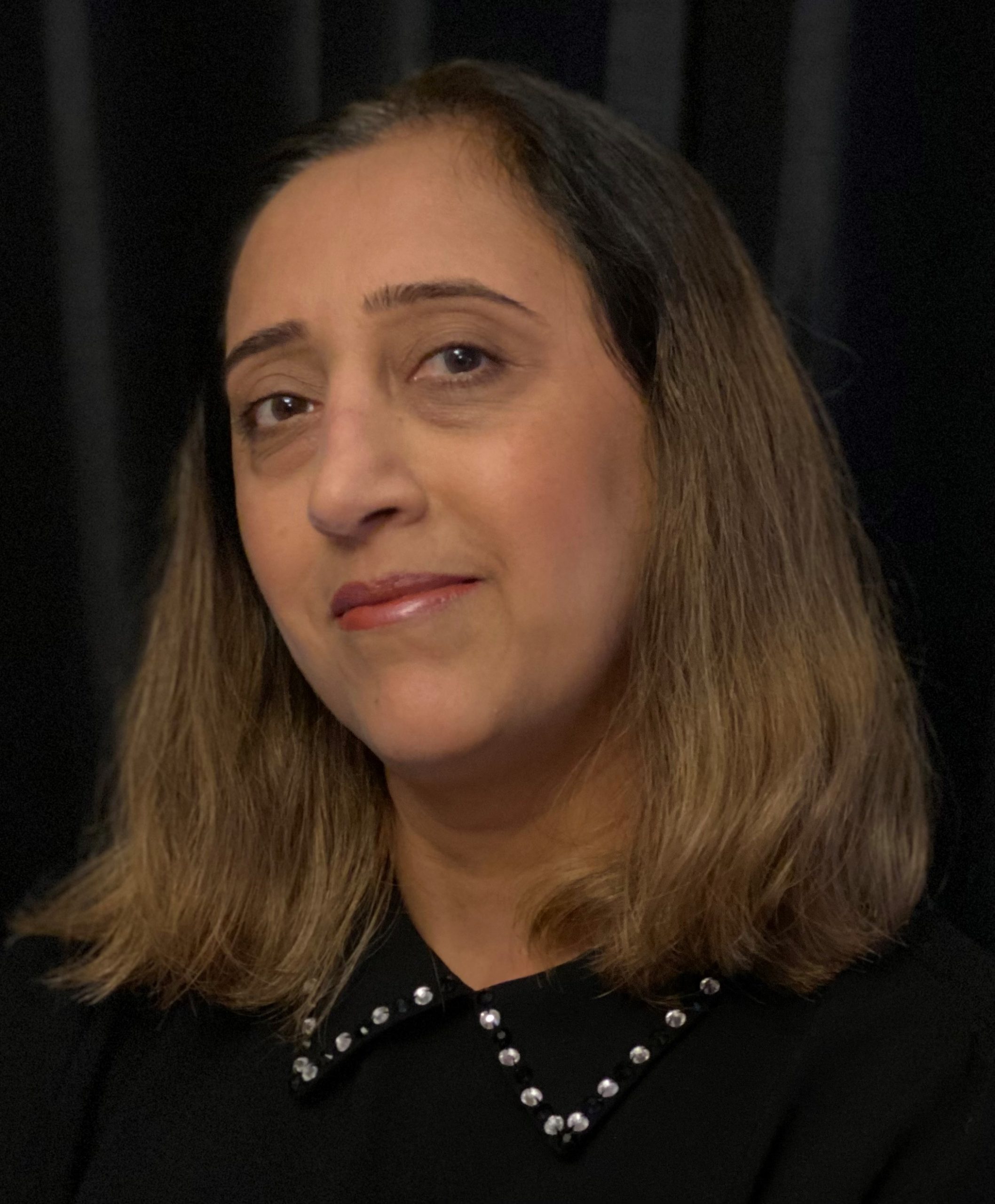 From an HR perspective, in preparation for the new low- and zero-carbon fuels that will be on board the merchant fleet soon there needs to be an immediate consideration to the training of the maritime workforce. Therefore, my wish for the industry in the year ahead, is for there to be a collaborative approach and investment by all stakeholders in the development of the training infrastructure to ensure the health and safety of the workforce in the safe handling of all low flashpoint fuels.
From an HR perspective, in preparation for the new low- and zero-carbon fuels that will be on board the merchant fleet soon there needs to be an immediate consideration to the training of the maritime workforce. Therefore, my wish for the industry in the year ahead, is for there to be a collaborative approach and investment by all stakeholders in the development of the training infrastructure to ensure the health and safety of the workforce in the safe handling of all low flashpoint fuels.
Ben Bailey, Director of Programme, Mission to Seafarers
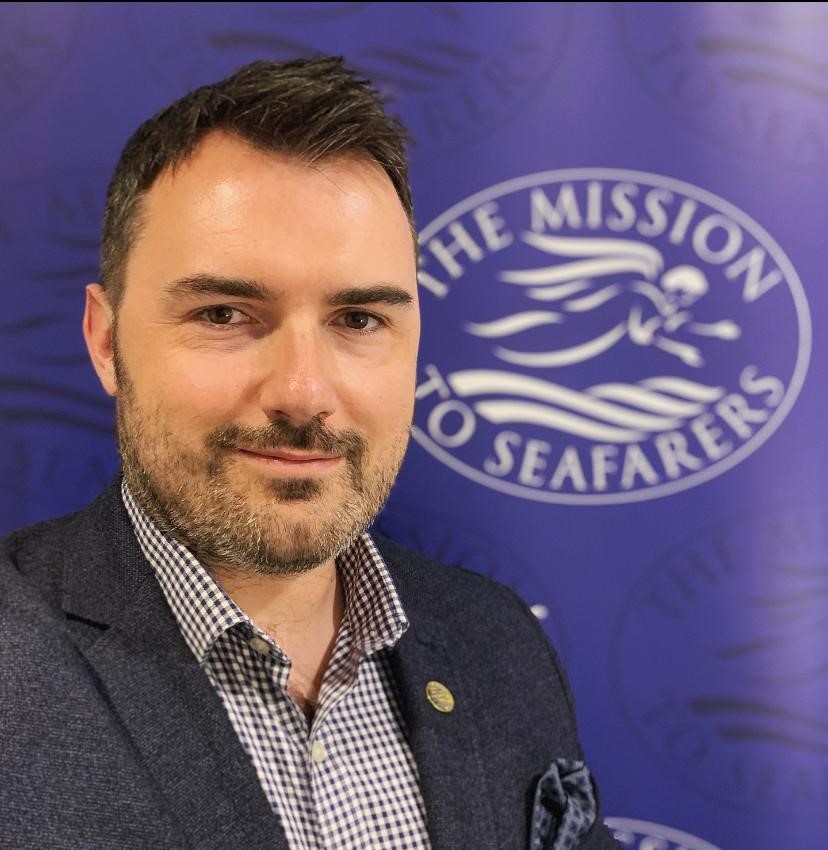 Seafarers give up so much of their every day lives so that we can live ours. That deserves concrete ways of saying thank you: good salaries, shorter contracts, more crew on board to ease pressure and longer turnaround times will all play a part. Those are things the industry can control. It’s now time to look at what role society can play to make seafarers valued. We know from the Seafarers’ Happiness Index just how ignored many crews feel by the world, and our wish today is that the industry will join hands to shout from the rooftops to highlight the importance of the seafarer and their need for decent welfare. If we do, retention and recruitment will be easier in the future. At The Mission to Seafarers, our teams around the world will be delivering presents and communication facilities to crews on Christmas Day, thanking them for their service and providing much needed respite from the isolation many face. But more is required. Governments, industry and civil society must work together to increase the rights of seafarers visiting foreign ports and ensure that sustainable services exist to provide them with the help they need and the respect they deserve.
Seafarers give up so much of their every day lives so that we can live ours. That deserves concrete ways of saying thank you: good salaries, shorter contracts, more crew on board to ease pressure and longer turnaround times will all play a part. Those are things the industry can control. It’s now time to look at what role society can play to make seafarers valued. We know from the Seafarers’ Happiness Index just how ignored many crews feel by the world, and our wish today is that the industry will join hands to shout from the rooftops to highlight the importance of the seafarer and their need for decent welfare. If we do, retention and recruitment will be easier in the future. At The Mission to Seafarers, our teams around the world will be delivering presents and communication facilities to crews on Christmas Day, thanking them for their service and providing much needed respite from the isolation many face. But more is required. Governments, industry and civil society must work together to increase the rights of seafarers visiting foreign ports and ensure that sustainable services exist to provide them with the help they need and the respect they deserve.
Alice Amundsen, Consultant, Gard AS My wish is for global preparedness for future pandemics and other health crises for seafarers. These men and women are critical to keeping the global supply chain open and flowing, delivering goods essential to the normal functioning of society, crucial for pandemic response and recovery. Yet, their health and wellbeing have not been a priority, and they have greatly suffered as a result. Governments should not wait until the next crisis, a global response needs to be worked out now – policies, protocols and regulations need to be agreed and implemented. In addition, the IMO or other global body should have the authority to enforce states to comply and act.
My wish is for global preparedness for future pandemics and other health crises for seafarers. These men and women are critical to keeping the global supply chain open and flowing, delivering goods essential to the normal functioning of society, crucial for pandemic response and recovery. Yet, their health and wellbeing have not been a priority, and they have greatly suffered as a result. Governments should not wait until the next crisis, a global response needs to be worked out now – policies, protocols and regulations need to be agreed and implemented. In addition, the IMO or other global body should have the authority to enforce states to comply and act.
Capt. Panagiotis Nikiteas, HSQE Manager / DPA / CSO, Maran Dry Management
 What a year 2022 was….COVID, wars, conflicts, restrictions, new requirements, plethora of added legislation/rules/requirements and latest technologies. The banner on each vessel stating “Safety First” and the statement on each management company’s policy stating “Safety is our utmost priority” do remain unchanged. But how realistic this is when the trade-off between efficiency and thoroughness is real and pressure on seagoing personnel from all stakeholders, including terminals, shippers, receivers, charterers, authorities, agents, owners and managers is increasing? My wish for 2023 and beyond is, the “Safety First” attitude and mentality to grow and gain the weight it deserves from all onboard and especially from all ashore!
What a year 2022 was….COVID, wars, conflicts, restrictions, new requirements, plethora of added legislation/rules/requirements and latest technologies. The banner on each vessel stating “Safety First” and the statement on each management company’s policy stating “Safety is our utmost priority” do remain unchanged. But how realistic this is when the trade-off between efficiency and thoroughness is real and pressure on seagoing personnel from all stakeholders, including terminals, shippers, receivers, charterers, authorities, agents, owners and managers is increasing? My wish for 2023 and beyond is, the “Safety First” attitude and mentality to grow and gain the weight it deserves from all onboard and especially from all ashore!
Johanna Karlstrom, Loss Prevention Executive, ALANDIA
 I would wish for our industry to appreciate seafarers as the important workforce that they are. To make sure they have a safe working and social environment onboard, and secure employment so that they feel able to speak up when necessary and receive support from their company in difficult situations. Today seafarers are still undervalued, and many physically and psychologically unsafe practices remain. Some changes are happening but there is no fast track. I hope for 2023 to be the year we really start to value seafarers and the tough job they are doing around the clock. We would not have our maritime industry without the brilliant seafarers all over the world who continue operating under all conditions!
I would wish for our industry to appreciate seafarers as the important workforce that they are. To make sure they have a safe working and social environment onboard, and secure employment so that they feel able to speak up when necessary and receive support from their company in difficult situations. Today seafarers are still undervalued, and many physically and psychologically unsafe practices remain. Some changes are happening but there is no fast track. I hope for 2023 to be the year we really start to value seafarers and the tough job they are doing around the clock. We would not have our maritime industry without the brilliant seafarers all over the world who continue operating under all conditions!
Henning Gramann, CEO, Green Ship Recycling Services.
 Considering quality and compliance in regards to IHM and ship recycling properly.
Considering quality and compliance in regards to IHM and ship recycling properly.
Raal Harris, Chief Creative Officer, OCEAN Technologies Group
 After the last few years, I’d ask for a brief period of calm in which we can all regroup, collect our thoughts and prepare for the big challenges. I’m someone who ordinarily embraces change and disruption, but I feel we all now need to get out of tactical mode and be able to get back to thinking strategically. We need to refocus on longer term goals that will genuinely transform our industry for the better. We have some big challenges ahead and we need to prioritise with laser precision to maximise our effectiveness.
After the last few years, I’d ask for a brief period of calm in which we can all regroup, collect our thoughts and prepare for the big challenges. I’m someone who ordinarily embraces change and disruption, but I feel we all now need to get out of tactical mode and be able to get back to thinking strategically. We need to refocus on longer term goals that will genuinely transform our industry for the better. We have some big challenges ahead and we need to prioritise with laser precision to maximise our effectiveness.
Bryan Comer, PhD, Marine Program Lead, Washington DC Office, ICCT
 A zero by no later than 2050 target in IMO’s revised greenhouse gas strategy, with a commitment to cut well-to-wake carbon dioxide equivalent emissions by at least one-third by 2030.
A zero by no later than 2050 target in IMO’s revised greenhouse gas strategy, with a commitment to cut well-to-wake carbon dioxide equivalent emissions by at least one-third by 2030.
Rohit Agarwal, Managing Partner at GUIDESHIP CONSULTING SERVICES LLP
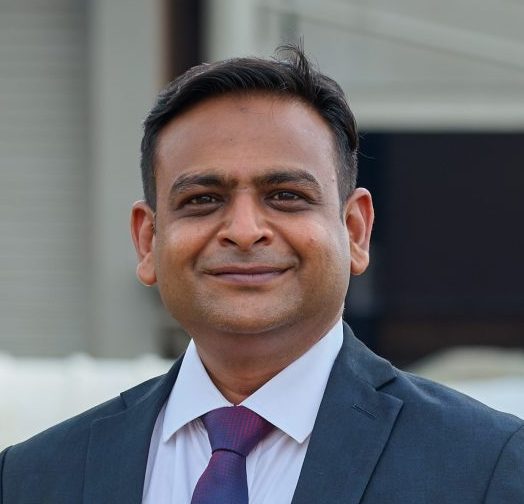 The maritime industry will continue to face many hurdles, certainly in terms of decarbonisation and digitalisation. Ship recycling is still a dark side of shipping, recycling yards can be a dangerous place and adverse incidents, whether technical, mechanical or through human error, are all too frequent. My one wish would be for clarity on regulations, and for this to include expedited instructions on what is expected of ship recycling yards. This is needed, not only for sustainable ship recycling to be achieved, but so that the necessary tools and information is readily available in uniformity to everyone across the industry. We must strive towards zero injuries, zero pollution, zero accidents, and make the recycling yards a much safer place to work on. I am looking forward to continuing to support and build new partnerships across the industry.
The maritime industry will continue to face many hurdles, certainly in terms of decarbonisation and digitalisation. Ship recycling is still a dark side of shipping, recycling yards can be a dangerous place and adverse incidents, whether technical, mechanical or through human error, are all too frequent. My one wish would be for clarity on regulations, and for this to include expedited instructions on what is expected of ship recycling yards. This is needed, not only for sustainable ship recycling to be achieved, but so that the necessary tools and information is readily available in uniformity to everyone across the industry. We must strive towards zero injuries, zero pollution, zero accidents, and make the recycling yards a much safer place to work on. I am looking forward to continuing to support and build new partnerships across the industry.
Akshat Arora, Senior Surveyor, Loss Prevention, Standard Club
 I would wish for a greater recognition for the shipping industry and respect for the work done by seafarers. Seafarers enable 90% of global trade by operating vessels. Yet we continue to see cases where seafarers are being deprived of their basic human rights and dignity. This decadence of seafarers’ rights has to stop. They are ‘key workers’ and deserve to be treated accordingly, while they continue to provide essential services to the world. This festive season, while you are out shopping and reach for an item on a fully stocked shelve, remember that seafarers had a hand in putting them there. We enjoy the fruits of their labour, the least we could do is to acknowledge that and be thankful.
I would wish for a greater recognition for the shipping industry and respect for the work done by seafarers. Seafarers enable 90% of global trade by operating vessels. Yet we continue to see cases where seafarers are being deprived of their basic human rights and dignity. This decadence of seafarers’ rights has to stop. They are ‘key workers’ and deserve to be treated accordingly, while they continue to provide essential services to the world. This festive season, while you are out shopping and reach for an item on a fully stocked shelve, remember that seafarers had a hand in putting them there. We enjoy the fruits of their labour, the least we could do is to acknowledge that and be thankful.
Capt. VS Parani, Vice-President- Marine, Tufton Asset Management Ltd.
 I wish for the maritime industry to focus on external engagement during 2023. We need focus groups to work on constructive solutions ranging from expedited visas and airport transit for seafarers, fair treatment of seafarers in ports including shore leave, better navigational conditions in ports and pilotage standards, improved coordination with the shore terminals, ease of port and customs clearance, improved upstream cargo handling, improved port security, to emissions and waste reduction and handling. The industry and governments collectively need to work to ease the friction and communication gaps in the ship-shore interface which has significant potential to improve maritime safety and pollution prevention and optimize the efficiency and cost of maritime transport.
I wish for the maritime industry to focus on external engagement during 2023. We need focus groups to work on constructive solutions ranging from expedited visas and airport transit for seafarers, fair treatment of seafarers in ports including shore leave, better navigational conditions in ports and pilotage standards, improved coordination with the shore terminals, ease of port and customs clearance, improved upstream cargo handling, improved port security, to emissions and waste reduction and handling. The industry and governments collectively need to work to ease the friction and communication gaps in the ship-shore interface which has significant potential to improve maritime safety and pollution prevention and optimize the efficiency and cost of maritime transport.
Catarina Fant, Director, Brand & Communications
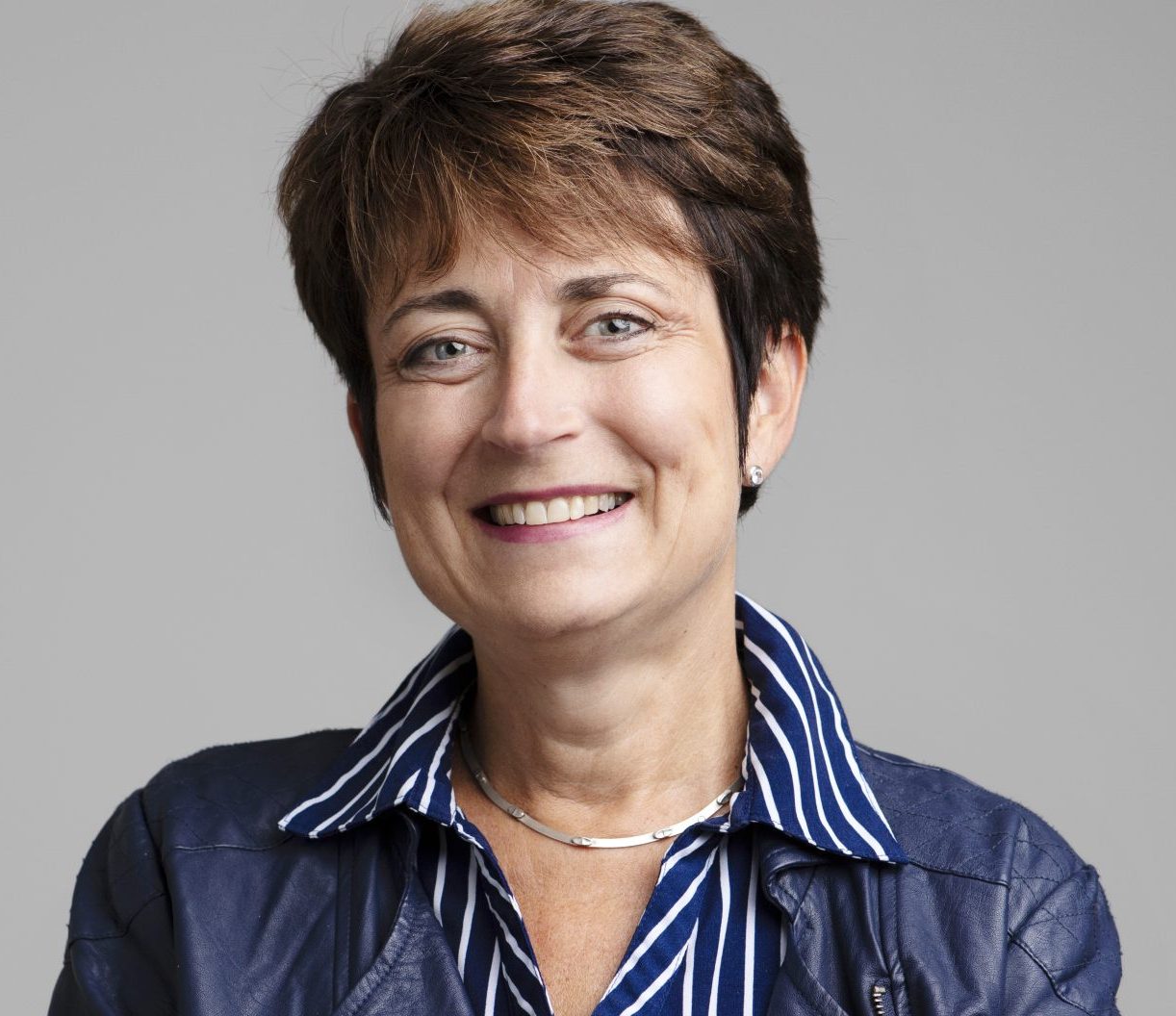 We at Wasaline would wish for a worldwide ban on open loop scrubber solutions.
We at Wasaline would wish for a worldwide ban on open loop scrubber solutions.
Charles Watkins, CEO MHSS – Mental Health Support Solutions
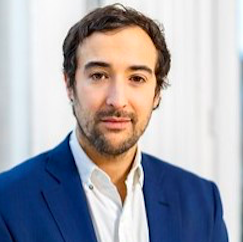 If I could make one wish it would be for the industry to realise that the good shepherd should shear his flock, not to skin it. Ignoring manning levels, job security and long contracts directly contradicts any efforts to understand and improve the human element in shipping – especially mental health. This complex multi-dimensional issue relates to maritime safety, security, and marine environmental protection but it falls short if human activities are undermined by fatigue, loss of concentration and anxiety about the future, while the luxury of rest is absent. It is clear to any person with a seafaring history that seafarers’ working conditions are found wanting but all too often people nod in agreement then remain silent when it counts.
If I could make one wish it would be for the industry to realise that the good shepherd should shear his flock, not to skin it. Ignoring manning levels, job security and long contracts directly contradicts any efforts to understand and improve the human element in shipping – especially mental health. This complex multi-dimensional issue relates to maritime safety, security, and marine environmental protection but it falls short if human activities are undermined by fatigue, loss of concentration and anxiety about the future, while the luxury of rest is absent. It is clear to any person with a seafaring history that seafarers’ working conditions are found wanting but all too often people nod in agreement then remain silent when it counts.
Mia Elg, R&D Manager, Deltamarin
 My wish for 2023 is mainly to increase the good cooperation between all parties in the industry to really enable the reduced environmental impact of shipping.
My wish for 2023 is mainly to increase the good cooperation between all parties in the industry to really enable the reduced environmental impact of shipping.
Päivi Brunou, Director Cybersecurity and Development Governance Wärtsilä Voyage
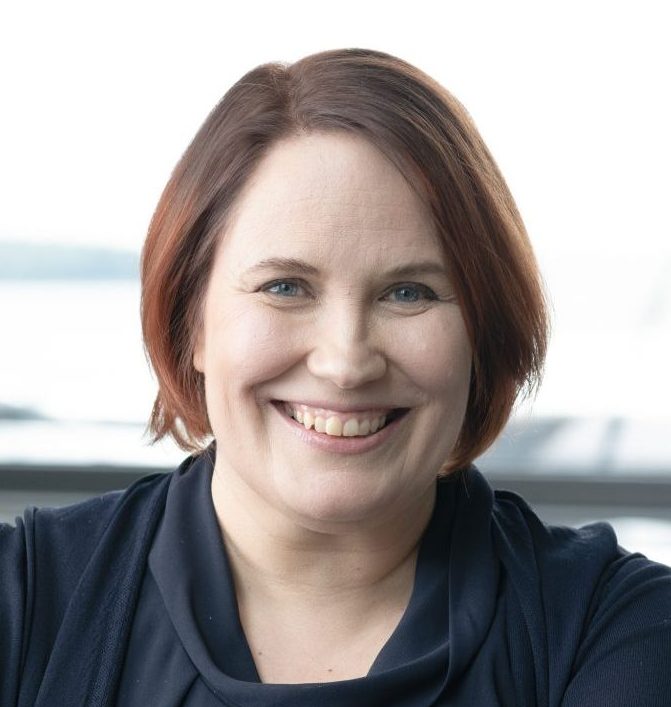
For year 2023 – I wish that maritime cybersecurity culture evolves from being aware towards inclusive cyber security culture. Building fit for context and inclusive cybersecurity culture focuses on training skills and offering low-barrier support for both work and personal security. Risks are relevant and regularly up-dated also in training materials. Giving employees the opportunity to participate in security decisions impacting them and fostering frequent dialogue security and privacy topics will allow the organization in maritime ecosystem to really make cyber security everybody’s business!
Heidi Heseltine, CEO, Halcyon Recruitment & Founder, Diversity Study Group
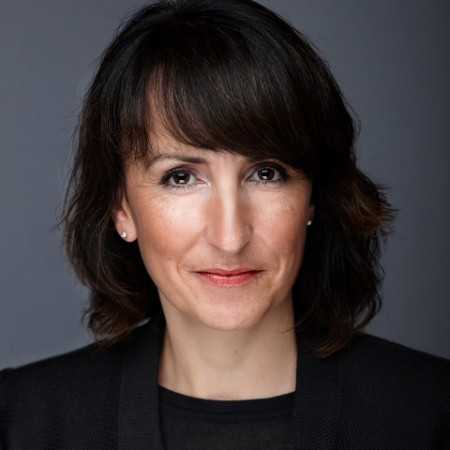 My wish for the maritime industry in 2023 is to accelerate the drive from intent to action when it comes to our working cultures for employees at sea and ashore, both to benefit those we have now and to help attract the diverse talent pool of future leaders needed to meet our decarbonisation and sustainability goals. A clearly defined strategy combined with the effective use of data are essential to drive progress and ensure leaders are fully equipped to support and nurture the teams they lead. The data we collect impacts our ability to communicate change and make progress on building more diverse, equitable, inclusive workplaces. Stakeholders expect and increasingly require greater transparency, and trusted data is an important building block.
My wish for the maritime industry in 2023 is to accelerate the drive from intent to action when it comes to our working cultures for employees at sea and ashore, both to benefit those we have now and to help attract the diverse talent pool of future leaders needed to meet our decarbonisation and sustainability goals. A clearly defined strategy combined with the effective use of data are essential to drive progress and ensure leaders are fully equipped to support and nurture the teams they lead. The data we collect impacts our ability to communicate change and make progress on building more diverse, equitable, inclusive workplaces. Stakeholders expect and increasingly require greater transparency, and trusted data is an important building block.
Tim Slingsby, MCG Chair
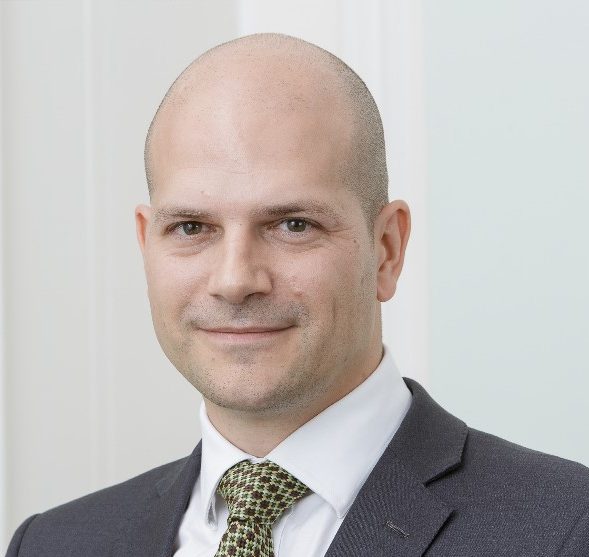 For a brief moment in 2020 at the height of the Covid-19 pandemic the world’s attention was focused on seafarers. We suddenly understood the vital role they play in transporting food, medicines and other critical supplies around the world. When that system was disrupted, we all sat up and paid attention. The maritime sector is undergoing unprecedented levels of change and challenge. Never before has the role of the seafarer been so vital and yet so invisible. My wish for 2023 is that seafarers – and the maritime industry as a whole – are consistently recognised, understood and valued by wider society.
For a brief moment in 2020 at the height of the Covid-19 pandemic the world’s attention was focused on seafarers. We suddenly understood the vital role they play in transporting food, medicines and other critical supplies around the world. When that system was disrupted, we all sat up and paid attention. The maritime sector is undergoing unprecedented levels of change and challenge. Never before has the role of the seafarer been so vital and yet so invisible. My wish for 2023 is that seafarers – and the maritime industry as a whole – are consistently recognised, understood and valued by wider society.
Bjørn K. Haugland, CEO, Skift – Business Climate Leaders
 My wish for the maritime industry for 2023 is that the issue of sustainability will become mainstream and take the centre stage in the maritime sector. Combined with technology, this will be a strong platform to drive the opportunity for the future, with expectation of the expansion of autonomous shipping, increased digitisation and further introduction of artificial intelligence systems. Leaders in the entire industry must focus on people, skills and competence building to attract new talent and retain existing expertise. The shipping industry remains resilient, robust and adaptable. Historically, it always emerges stronger after challenging times.
My wish for the maritime industry for 2023 is that the issue of sustainability will become mainstream and take the centre stage in the maritime sector. Combined with technology, this will be a strong platform to drive the opportunity for the future, with expectation of the expansion of autonomous shipping, increased digitisation and further introduction of artificial intelligence systems. Leaders in the entire industry must focus on people, skills and competence building to attract new talent and retain existing expertise. The shipping industry remains resilient, robust and adaptable. Historically, it always emerges stronger after challenging times.
Lieutenant Colonel Lester Yong, Head IFC, Information Fusion Centre (IFC)
 The IFC would like to see our partners from the maritime community work closer with enforcement agencies to form a stronger “neighbourhood watch” at sea. In 2022, while the number of maritime security incidents remain high, we have seen many successful operational outcomes which thwarted the attempts of perpetrators through timely reporting by our shipping partners and prompt response from the authorities. I would also like to encourage continued feedback from our shipping partners, which have led to new IFC initiatives such as the Bridge Card and improvements to our events and products like the infographics. It is only through close cooperation among various maritime stakeholders that we can work towards a safe and secure seas for all!
The IFC would like to see our partners from the maritime community work closer with enforcement agencies to form a stronger “neighbourhood watch” at sea. In 2022, while the number of maritime security incidents remain high, we have seen many successful operational outcomes which thwarted the attempts of perpetrators through timely reporting by our shipping partners and prompt response from the authorities. I would also like to encourage continued feedback from our shipping partners, which have led to new IFC initiatives such as the Bridge Card and improvements to our events and products like the infographics. It is only through close cooperation among various maritime stakeholders that we can work towards a safe and secure seas for all!
Nick Austin, Shipping Partner, Reed Smith
 T.S. Eliot once said ‘Sometimes things become possible if we want them bad enough’. As a maritime lawyer, my wish for 2023 is that the legal systems on which everyone in the shipping sector relies for clarity and certainty continue to develop in step with the industry and recognise the big issues in a changing world: safety of life at sea, decarbonisation and digitalisation. It is for all of us in the legal world, from global regulation to the common law, to play our part in ensuring the law keeps up. If we want it badly enough, it might just be possible.
T.S. Eliot once said ‘Sometimes things become possible if we want them bad enough’. As a maritime lawyer, my wish for 2023 is that the legal systems on which everyone in the shipping sector relies for clarity and certainty continue to develop in step with the industry and recognise the big issues in a changing world: safety of life at sea, decarbonisation and digitalisation. It is for all of us in the legal world, from global regulation to the common law, to play our part in ensuring the law keeps up. If we want it badly enough, it might just be possible.
Peter Stanley, CEO of IFAN Group (International Foundation for Aids to Navigation)
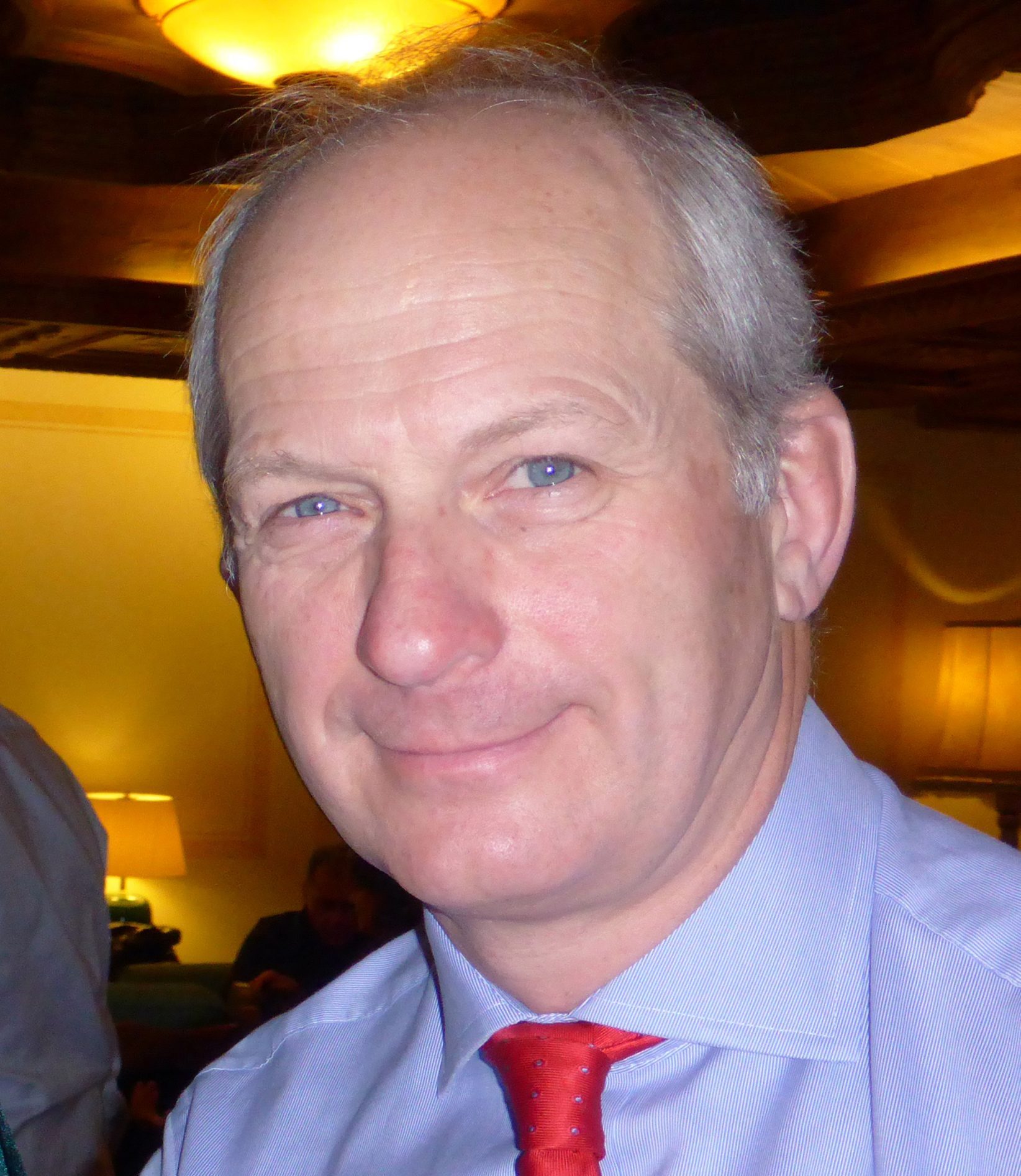 My wish is that mariners and the companies that they work for, appreciate the efforts that many organisations within in the global shipping industry go to, to make sure that they are provided with the best navigational information and tools that they need to keep both the mariners and their cargoes safe. Safe navigation of the world’s fleet is a must; not an exception and is essential to ensuring the safe movement of ships thus supporting the channels of trade to flow smoothly.
My wish is that mariners and the companies that they work for, appreciate the efforts that many organisations within in the global shipping industry go to, to make sure that they are provided with the best navigational information and tools that they need to keep both the mariners and their cargoes safe. Safe navigation of the world’s fleet is a must; not an exception and is essential to ensuring the safe movement of ships thus supporting the channels of trade to flow smoothly.
Source: Safety4Sea
Related Posts
New Maritime Industry Cyber Security Scheme
A new Maritime Cyber Baseline scheme launched by IASME and supported by The Royal Institution of..
Shipping industry seeks to combat dark oil..
Top oil shipping companies say they have tightened operational guidelines and deployed technology..
CYBERCRIMINALS TARGET TRANSPORT AND LOGISTICS..
Cybercriminals are targeting organizations along the supply chain sector with cyberattacks and..



